





ALSO INSIDE:
Tennessee, Blount County experiencing farmland loss
Second Harvest Volunteers pack 136,000 lunches
Compassion Counseling offers mental health services
PROFILES:
Herman Long
Chris Ross

Perseverance, Charity and Achievement
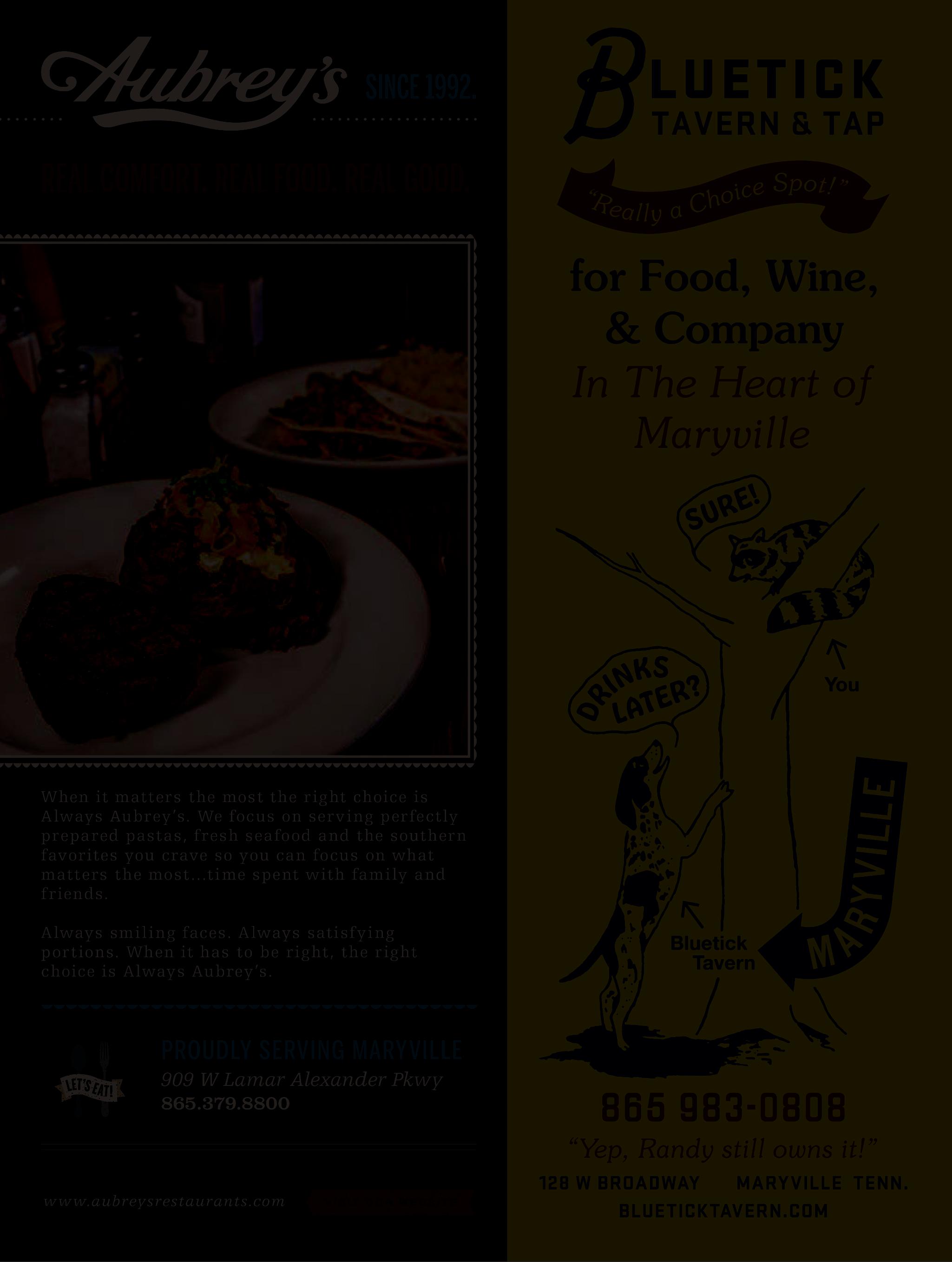
you get older, you begin taking stock of your life … and preparing to let things go
I reached a milestone birthday in January—70 years on this planet. It’s hard to believe I’m not the little imp following Daddy around and trying to do everything he did, from driving nails to planting a garden; or that shy teenager hanging out with friends at Everett High School football games; or the University of Tennessee student in my first serious relationship with the man who I would eventually marry. Time sped up significantly after graduation and marriage. Seriously, how can those babies who came along several years later now be in their mid-40s? And how can the two oldest grandchildren be teenagers, one driving, the other not far from it? I’m not going to think about that, though, or the fact that in 10 years, they will probably be married, maybe with children of their own.
With this age has also come the knowledge that there won’t be that many more birthdays. Far too many of my Everett High ’73 classmates have already gone on to the next big adventure. So, to try and keep life simpler for my kids when my own time comes, I’ve been working on the things that probably should have already been done, especially making a will and gathering up financial records and recording passwords so they can put their noses in my business and take care of all that minutia when I’m not here to do it.
Not to say that I won’t still be calling the shots. I’ve been making copious notes on how I want my possessions distributed. All those folders in the two tall file cabinets that hold notes, newspaper clippings and information about our local history? Donate them to the Blount County Genealogical and Historical Society. Several boxes stored under a table? They used to hold reams of copy paper, but they now hold tear sheets from The Daily Times of obituaries, beginning almost 20 years ago. Genealogical info that the kids don’t want to keep might be of interest to BCGHS, too, as well as all those local history books I’ve collected and photographs I’ve copied. In addition to the printed materials, I have scanned numerous records and saved them to DVDs. One of my “death cleansing” projects is gathering up the DVDs and

transferring the historical records to flash drives so they will all be in one place.
Tonight was a pleasant trip down memory lane as I listed some special items in my china cabinet: glassware that had belonged to my mother, maternal great-grandmother, maternal grandfather and items gifted to me by friends. We’re talking depression glass; some dishes Mama earned by purchasing groceries at Kroger in the 1960s when I was a child; and the shaving mug her father used, complete with the brush. I will come back and haunt my children if these go outside the family! I also have a nice collection of Wexford glassware that I was gifted throughout the early years of my marriage. I suspect the kids won’t have a sentimental attachment to it, so I may sell it to help with the fund for new flooring and countertops for the kitchen. As I continue through the rest of the house, that pile of sale items will continue to grow.
I’m sure my children will be more than happy to have less to deal with down the road, and I’ll certainly be happy to have my kitchen redone. A win/win situation! We would love

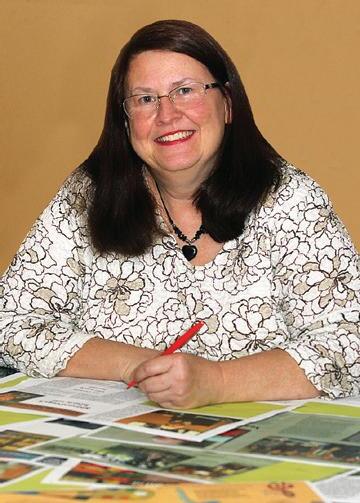

“Maryville, Alcoa, Blount County. There’s just not much ordinary about living here.
We are a college town that is next door to a larger college town, giving an orange glow to our pride in the garnet.
We are nestled in the shadow of the No. 1 most visited national park in the country, and we trace our roots back to a pioneer heritage and claim kinship with the founding fathers of our state. We are cashmere and Carhartt, farmers and freelancers, linemen and lawyers, moms and moguls.
We are stubborn about our past and persistent about our future. And it’s time we had a magazine that gives voice to our uniqueness.”
EDITOR
LINDA BRADEN ALBERT horizon@thedailytimes.com
DARLA ALLEN
HORIZON is published quarterly by THE DAILY TIMES, a newspaper of Adams Publishing Group LLC. Reproduction of the whole or any part of content herein is prohibited without prior written consent from the publisher. Opinions expressed by contributing writers and editors are not necessarily those of the publisher, editor or HORIZON Copyright 2025 by:
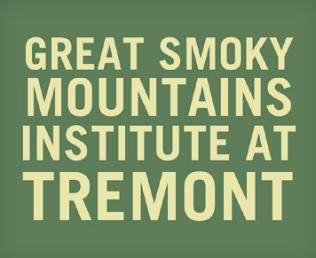



























shines as an example of perseverance, charity and achievement
By Lee Zimmerman
Life isn’t always easy. However, it’s the willingness to overcome the obstacles that stand in one’s way that defines an individual’s courage and character. Kaci Herron, a young lady with Down’s Syndrome, tackled her challenges head on, and not only learned to cope with what was handed her, but also to excel in the various endeavors she embarked upon. She fulfilled several of her ambitions simultaneously, beginning by competing in various beauty pageants, including several that she went on to win.


“I have always wanted to be on stage, whether it was singing or modeling,” Kaci explains. “I had a friend who was doing pageants and I thought it looked like fun. I started entering pageants about eight years ago. My first pageant was the Miss Shining Star pageant. It’s a free pageant that seeks to promote inclusivity and bring awareness
to the special-needs community. I won Miss Shining Star one year. Two years ago, I won Miss Personality, which sent me to the Miss Tennessee and the Southern States pageants. I also won Miss Personality at the latter pageant, which then sent me to the Nationals competition, where I won the title of Miss Heartland USA. Last year, I entered the Miss Volunteer State competition and won that, which sent me back to the Miss Tennessee and Southern States regional pageants where I won the title of Miss Tennessee Star. That sent me to the nationals once again, where I won Miss USA Star.”
Miss Tennessee Star and Miss USA Star are part of the AmeriFest pageant system, Kaci explained.
Despite the fact that her successes seemed to come quickly, Kaci admits that at first she was somewhat intimidated. “I was really nervous when I started the pageants,” she recalls. “But each time, the confidence grows. I get so much support and encouragement from my family, my pageant family and Ms. Rhoni Stander, the Miss Shining Star director. As a result, I have gained so much confidence and courage while competing in the pageant system.”
Her efforts don’t end there. She’s a steadfast
• Continued on next page

advocate for veterans and military personnel, and she tirelessly continues to maintain her efforts on their behalf.
“My brother inspired me to work and support the military,” Kaci says. “He is a nuclear power operator in the Navy. We miss him so much. I have used my platform to bring more awareness to our military and support our soldiers and sailors along with their families. I have donated to the local VFW and collected Christmas cards to send to the troops. I will be participating in the HonorAir flight in April, which I am so excited to be a part of.”
The HonorAir flights she refers to take World War II, Korean and Vietnam veterans from East Tennessee to Washington, D.C., to visit the memorials built to honor their sacrifices. There is no charge to the veterans for participating in these excursions.
Now, at age 21, Kaci is a high school graduate, but she continues to attend life skill classes at Greenback Public School. She participates in Project ABLE, a program that provides special needs students with the opportunity to lead an independent life by offering them job skills that can prepare them for the workforce after high school.
According to the experts, Down syndrome, sometimes known as Down’s syndrome, is a generic disorder usually associated with





developmental delays, mild to moderate intellectual disability and characteristic physical features. While there is no cure, education and proper care have been shown to provide better quality of life. Some children with Down syndrome are educated in typical school classes, while others require more specialized education. Some individuals with Down syndrome graduate from high school and some go on to achieve post-secondary education. In adulthood, about 20% in the United States do some paid work, although many require a sheltered work environment. Caretaker support in financial and legal matters is often needed, as well.
Despite any of those confines, Kaci’s confidence is readily apparent. “I feel I have overcome some people’s opinions that someone with a disability can’t achieve great things,” she says. “My joy and happiness come from my family. They also come from being a high school cheerleader for four years, participating in pageants, singing, and from friends.”
So too, Kaci insists that there’s nothing that deters her. Most


importantly, she has confidence in her ability to make a positive impression overall while also making it clear that she firmly believes there’s no limit to what she can achieve. Kaci shares her due diligence and keeps a clear focus on her goals. “I am working hard on self-advocacy and speaking up for individuals with disabilities,” she says. “I am capable of great things. Please do not put limits on what I can do. I am definitely more alike than different.”
She’s quick to thank her immediate family — her parents and her two older siblings, Amber and Brad, for supporting her throughout her journey. “My family is always there for me, cheering me on,” she says. “I love my siblings so very much. They are always there for me. They’re always encouraging my dreams. They inspire me every day with all of their love and support.”
She’s also quick to express the compassion and consideration she feels for others.
“I would like people to know that I am kind and caring,” she says. “I love my family and friends. I love University of Tennessee sports, singing and the Great Smoky Mountains. I also love volunteering at the Second Harvest Food Bank and Young Williams Animal Shelter. I love all types of music, but Reba McEntire is my favorite! I would love to open my own bakery one day and sing on stage with Reba!”
Her gratitude doesn’t end there. “I want to thank God, my family, my teachers, Ms. Rhoni, and everyone that has supported and encouraged me through my life.”
Given her ambition and accomplishments, the affirmation she’s been shown has clearly paid off.
By Linda Braden Albert
One of Blount County’s historic cemeteries is in need of a facelift, and a family with ancestors buried there is seeking help with mowing and maintenance both now and in the future.
Dave Kidd, of California, descends from the Kidd family buried at Mt. Moriah Cemetery, 4602 Singleton Station Road in Louisville. These include his great-great-grandparents, Randolph (Randall) and Mary Paul Kidd, his great-grandparents, Edmond and Margaret A. Kidd, and their descendants. “It is possible that my great-great-great-grandfather, Lewis Kidd, and his wife, Sarah, are buried there, but no proving documents or stones have been discovered as yet,” Kidd said.
Kidd learned about Mt. Moriah Cemetery after his sister and brother-in-law traveled from California on a “family cemetery tour” to Texas and then Tennessee before heading north to Nova Scotia in 2001. “When they got to Maryville, they had a handdrawn map that someone in Maryville had sent to one of my uncles, and the map had the number of a cemetery on it,” which was Mt. Moriah, Kidd said. They found the cemetery completely overgrown. “My brother-in-law got down on his hands and knees and started pulling brush apart until he found some chipped gravestones,” Kidd said. “He took a few pictures. He came back and said the cemetery is there but it’s overgrown and you can’t find much of anything.”
Shortly after that visit, a cousin, Blount County resident Lee Wilkinson, told one of Kidd’s family members about an annual Kidd Family reunion held in Blount County. “So, we contacted one of the cousins here, and they said, sure, come anytime,” Kidd said. His first visit was in 2006, a few years after Blount County historian Ken Cornett had begun work remediating the historic cemetery. “It was in much better condition than when our brother-in-law found it,” Kidd said. “So that was our introduction to Mt. Moriah and our introduction to the fact that we had all these pretty close relatives back in Tennessee.”
Mt. Moriah Cemetery was almost lost to time and encroaching vegetation when Blount historians began making the deplorable condition of the cemetery known to the public. In July 2004, official Blount County Historian Jane Thomas, now deceased, visited the cemetery and described it as “a jungle” in a story published in The Daily Times. Only eight tombstones were visible. After historian Ken Cornett, also now deceased, read the story, he immediately spearheaded a community-wide movement to reclaim the overgrown cemetery and unearth the
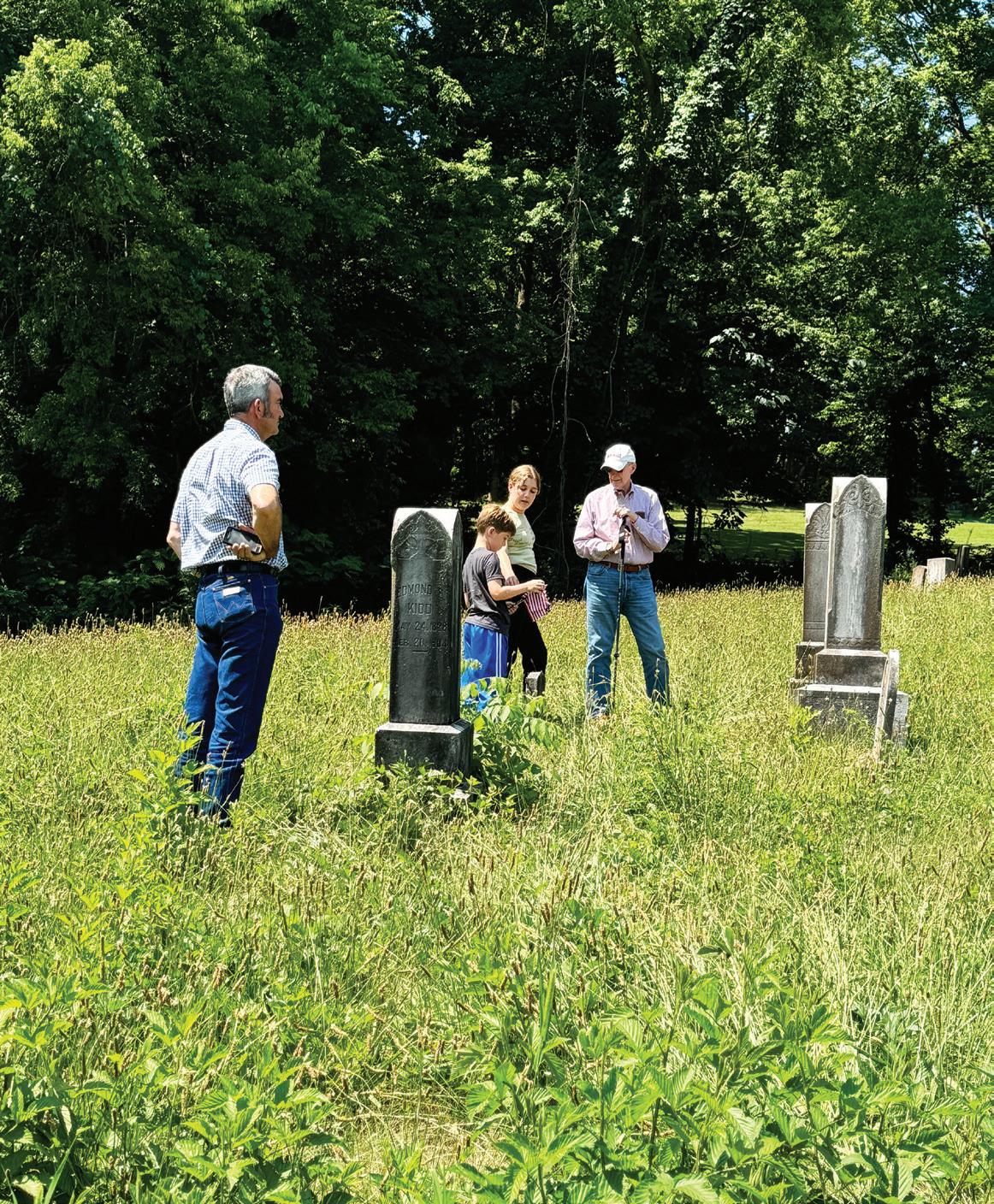
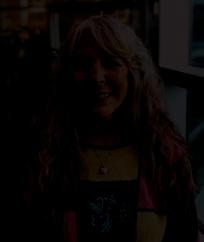

grave markers in remembrance of those interred. In the process, he documented as much of Mt. Moriah’s history as he could. Cornett soon found a copy of the original warranty deed from Sept. 7, 1846, which described the property as “containing by estimation three acres more or less laid out for the use of Mount Moriah House which is now in progress.”
A story published in The Daily Times on July 17, 2004, quoted Thomas as saying Mt. Moriah Methodist Church was listed as one of the churches in the Little River Circuit as early as 1845. She researched the property using “History of Blount County, Tennessee: From War Trail to Landing Strip, 1795-1955” by Inez Burns; “Blount County, Tennessee, Cemetery Records” by Edith B. Little; and Blount County property and tax records. Her research revealed that in 1850, Jesse F. Bunker was a local preacher at Mt. Moriah, and in 1866, trustees were Richard Kirby, Peter Rule, David Chandler, Isaac Lebow and John Chandler. The Chandlers are buried at Mt. Moriah, as well as Dr. John Singleton, a prominent Louisville doctor, who died in 1864, and other members of the Singleton Family. Names on the stone markers, recorded by Edith Little and Grace Speer in 1979, include Ambrister, Badgett, Bailey, Ballard, Ballew, Brown, Burum, Costner, George, Graves, Hampson, Harris, Henshaw, Hicks, Huff, Hutchinson, Johnston, Kidd, McFaddin, Malone, O’Dell, Presley, Rankin, Rodgers, Russell, Taylor, Vaughn, West, Wine and Wright.
The only deed of record for the Mt. Moriah property is dated March 5, 1907. Sam Robinson and his wife Jean conveyed the land to H.L.W. Singleton, S.S. Chandler, J.P. Chandler and Mike Callahan as trustees of Mt. Moriah Church “for the purchase of a public burying ground.” The price paid was $15 and the deed shows one half acre, more or less.
By 2018, Cornett, assisted by friends and volunteers, had restored Mt. Moriah by removing the overgrowth, mowing and resetting tombstones and continued its upkeep. Kidd said the cemetery is the resting place of some 25 Kidd family members and also includes cenotaphs for three Civil War veterans whose remains were never recovered.“All together, the Maryville Kidd clan, headed by grandfather Lewis, sent nine men to fight for the Union in the tragic early 1860s,” Kidd added.
After Cornett’s death in 2022, Mt. Moriah again was becoming overgrown. Kidd, with the help of his nephew Will Corbett in northern California and cousin Ken Kidd in Texas, started a fund in the fall of 2022 to clean up and mow the cemetery as they searched locally to find permanent caretakers. Kidd said, “The GoFundMe account paid for a ‘start fresh’ clean-up in 2022-23, and a last mow at the end of June 2023.”
Dave and Nina Kidd have continued researching Mt. Moriah in addition to searching for an “angel” to be responsible for its continued care.
“Records of Tennessee cemeteries indicate that Mt. Moriah is one of the oldest cemeteries in Blount County,” Kidd said. The earliest proven burials are of Josiah L. George, buried in 1840; Salina Chandler Ambrister, buried in 1845; and Isabella
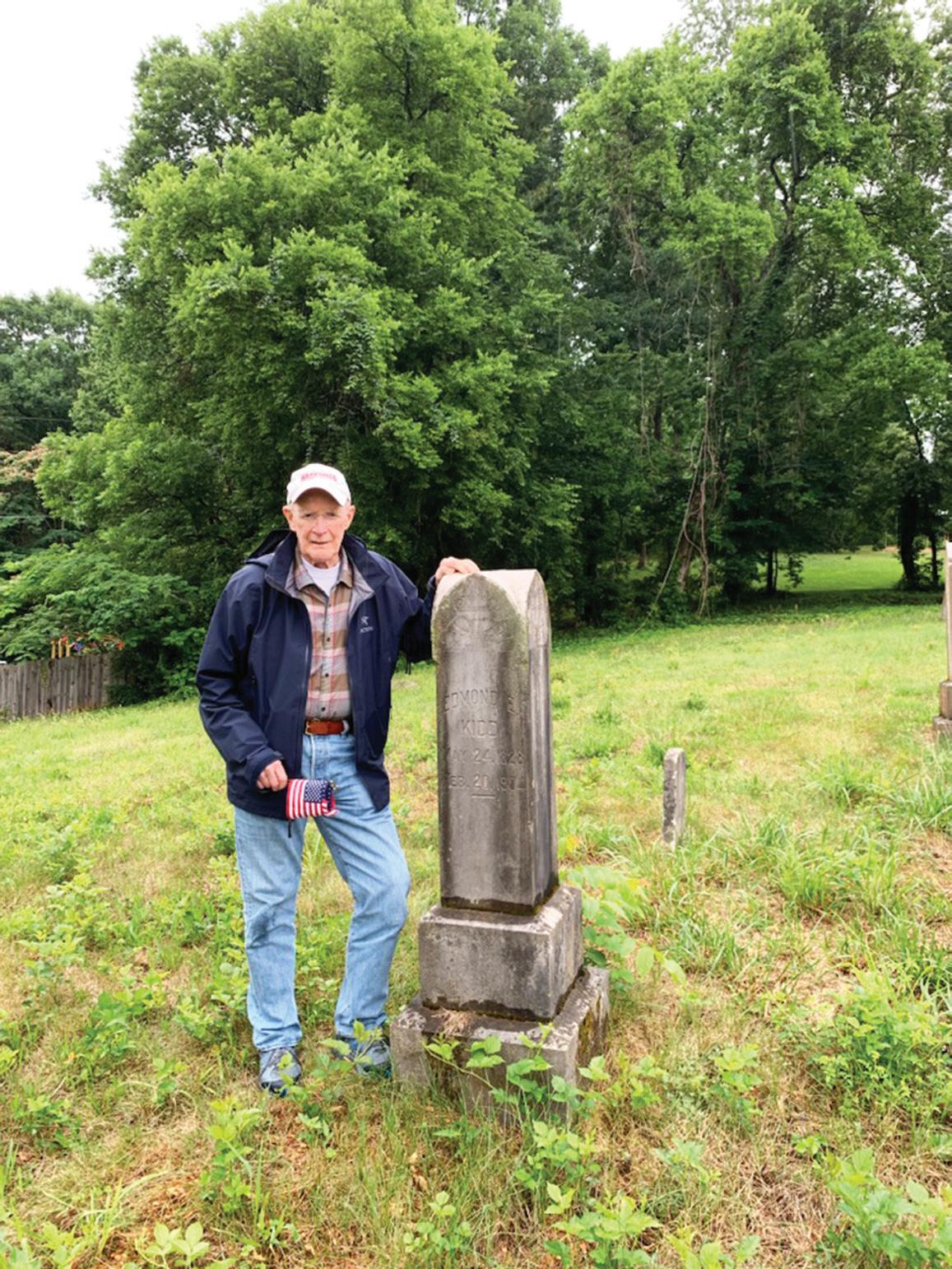
Chandler buried in 1847. “Also, there are numerous unreadable stones that appear to be older,” he said. The latest burials are for David A. Costner, buried in 1960, and Randolph, “Bob” Earnest Kidd, buried in 1961.
“Tradition has it that the Methodist Church building stood across the road from Mt. Moriah Cemetery,” Kidd said. “Today no clear trace of a building is there. However, there is now a private residence on the cemetery side of Singleton Station Road. It is located at the base of the cemetery hill, its land contiguous with the cemetery and faces Singleton Station Road. That house site may have been the location of the church. There is reason to believe that the church building was sold/moved/abandoned around 1964. I have not been able to find any record of this, but it is fairly clear that the cemetery fell into disuse in the mid1960s.”
One huge mystery remains: Who owns the property?
“Over several years’ search I found little solid documentation on the founding or ownership of Mt. Moriah Cemetery,” Kidd said, citing the 1907 deed transfer as the earliest mention of the property in Blount County Deeds and Transfers Office. “However, with the first known burial in 1840, evidence indicates that the cemetery’s origins may have been earlier.”
• Continued on next page
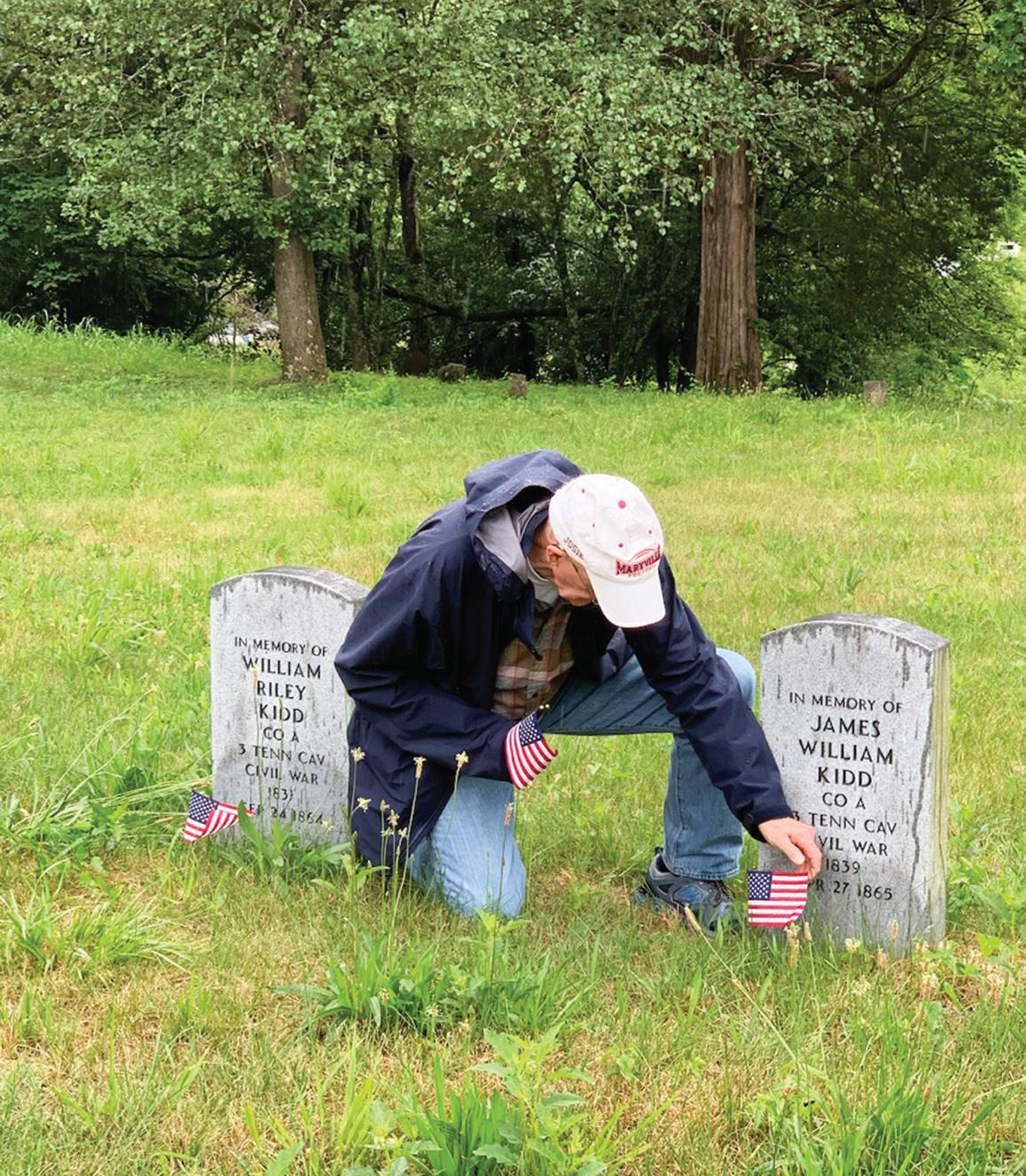
COURTESY OF DAVE KIDD
Dave Kidd, of California, attended the 99th Kidd Family Reunion in June 2023 in Maryville and visited Mt. Moriah Cemetery, Singleton Station Road, Louisville, where he placed flags at the stones for his great-grand-uncles, William Riley Kidd and James William Kidd, to honor their service as Union soldiers in the Civil War. Both men were killed during the war, and their remains were not recovered.
Kidd said he has attempted to determine current ownership in consultation with the Blount County Genealogical and Historical Society and the Holston Conference of the United Methodist Church with no success. “As the cemetery property was/is nontaxable, Blount County has no current records,” he said. “It appears that, until Kidd family members re-discovered it in 2001, and even with local newspaper coverage by The Daily Times describing volunteer efforts starting in 2004 by Ken Cornett to clean up, mow the property and care for the stones, no official owner could be found. To date, no group or individual has come forward to claim ownership of the cemetery.
“All indications are that Mt. Moriah Cemetery has truly been abandoned.”
Kidd applied for the cemetery’s inclusion on the Tennessee Historical Commission’s Tennessee State Historic Cemetery Register. The application was approved in October 2023. Kidd said, “I’m hoping that getting it listed as historic will help me in my continuing search for someone or some organization to take over its maintenance.”
A website, www.lewiskiddfamily.com was set up to provide information for Kidd researchers as well as to raise funds for the upkeep of Mt. Moriah Cemetery. Two GoFundMe accounts plus generous donations from interested parties helped with that
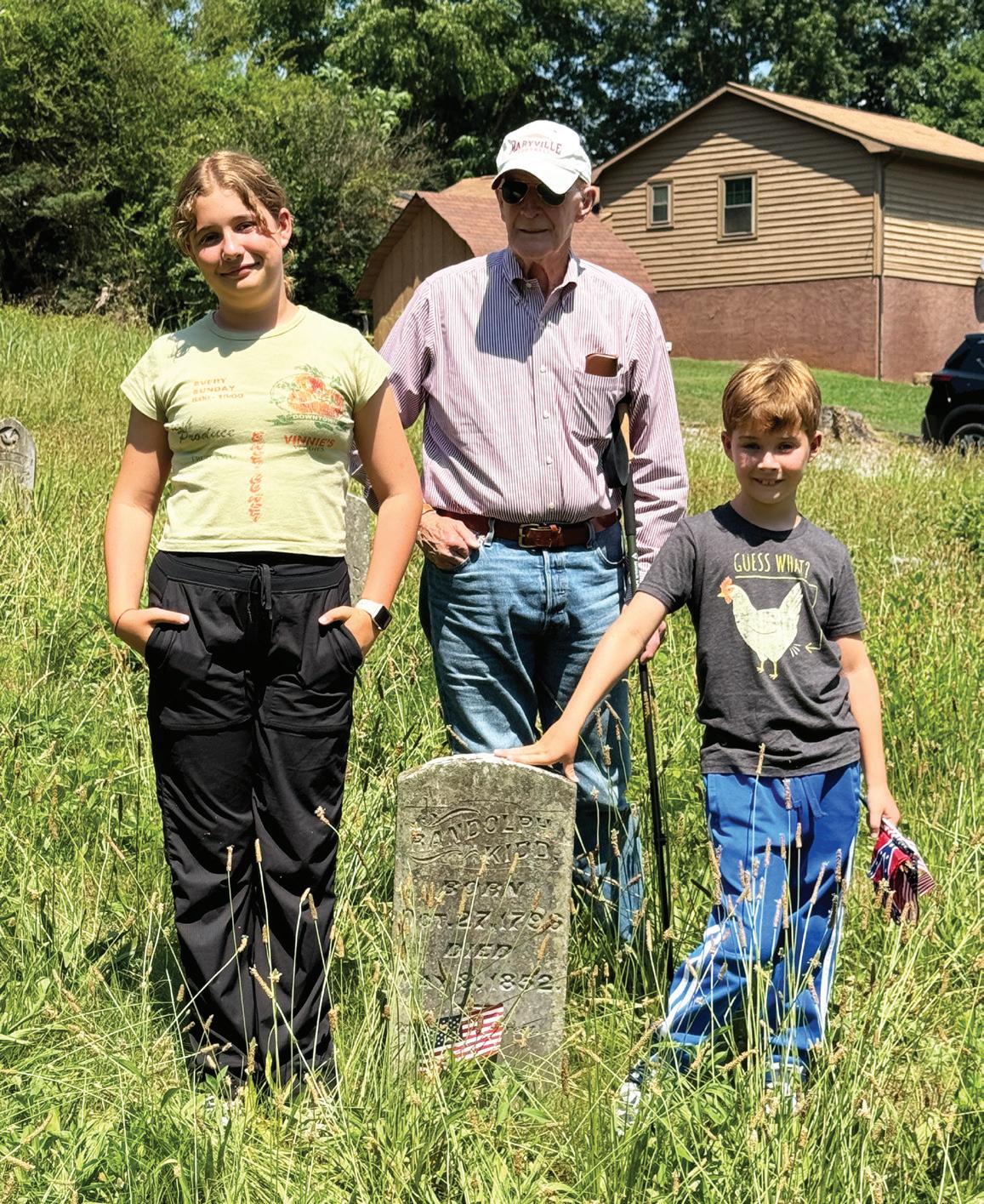
mission in 2023 and 2024 but the historic cemetery’s future is still uncertain.
Kidd stresses that the upkeep is not just for the Kidd family, but for all the families with ancestors at rest in Mt. Moriah Cemetery.
To donate, make checks/money orders payable to David M. Kidd with the note “RE: Mt. Moriah Cemetery,” and mail to David M. Kidd, 835 Muskingum Ave., Pacific Palisades, CA 90272.
Kidd also asks anyone with information about Mt. Moriah to contact him via the website.
356 SCalderwood St Alcoa, TN 37701-2108 Bus: 865-983-1801 www.teamkellersf.com

By Lee Zimmerman
“Counseling” and “compassion” are two words that should naturally go together. Compassion Counseling, a Maryville-based non-profit organization that, in the words posted on its website (cccmaryville.org), provides “timely, welcoming, accessible and affordable mental health counseling and education for all” aims to ensure that fact. It provides individual, couples and family counseling services for a wide variety of problems, including depression, anxiety, grief, relationship issues and more. It also assists adolescents and children ages 5 and up.
“Compassion is the foundation of our approach — not just in name, but in practice,” Executive Director Amy Blackwell explained. “Unlike traditional counseling services, we prioritize client-centered and traumainformed care that meets individuals where they are.”
Compassion Counseling also offers educational services such as anger and stress management classes, court ordered co-parenting classes to parents going through a divorce, and resiliency building groups for students in school settings. It also supports clergy and congregations by providing consultation groups on a monthly basis.
“Having an organization like Compassion Counseling in Maryville is essential because accessible, affordable mental health care is a critical need in our community,” Blackwell says. “We provide sliding-scale, no-waitlist services, ensuring that mental health care is available to those who need it most. Additionally, our trauma-informed, client-centered approach allows individuals to receive support without the pressure of a formal diagnosis or insurance limitations.”
Blackwell said the organization is currently celebrating 10 years of
service in Blount County. “One of the original founders, Suzanne Stratton, has returned and now serves as our clinical supervisor, continuing to support our mission of providing accessible mental health services to the community,” she explains. In addition, Compassion Counseling currently employs two full-time counselors, a part-time education facilitator and two MSW (Master in Social Work) interns who contribute to its services and programs.
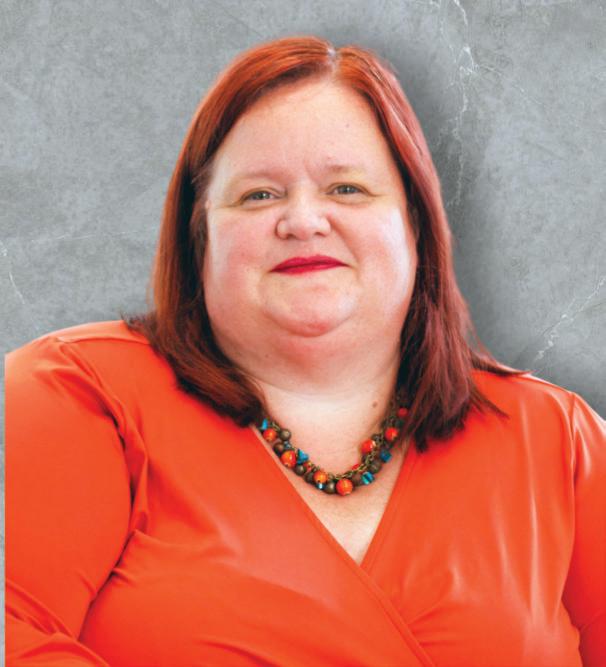
“In 2024, we provided therapy services to 216 clients and served an additional 93 individuals through our Anger Management classes,” Blackwell added. “Ours is a holistic, strength-based approach. We focus on empowering clients, not just addressing symptoms, fostering resilience and self-compassion. It’s community-focused, all-inclusive, non-judgmental support. We welcome diverse populations, creating a safe space where everyone is valued and supported.”
That’s where the compassion element comes into play, Blackwell continued. “We create a healing environment that prioritizes dignity, connection and lasting well-being. Because we do not accept insurance,
• Continued on next page

The greatest satisfaction comes from seeing clients make meaningful progress—whether it’s a small breakthrough, regaining hope or building resilience. “ ”
we are not required to assign a diagnosis or label to our clients. This allows us to provide truly individualized care without restrictions on the number of sessions. Whether a client needs short-term support for two or three sessions or ongoing care for several years, we tailor our services to meet their unique needs and goals.”
Blackwell has been with Compassion Counseling for just over a year, bringing a background in business and mental health advocacy to her position. She holds multiple peer support certifications including the Tennessee Department of Mental Health and Substance Abuse Services Certified Family Support Specialist, and is a nationally certified family peer specialist and trauma support specialist. Before joining Compassion Counseling, she worked with children and families, helping them navigate child-serving systems.

In recognition of her efforts, in 2021, Blackwell was honored with the Reclaiming Children Award, which recognizes individuals who have made outstanding contributions at the local or state level to support families of children experiencing mental health and substance use challenges.
“In 2024, I was appointed to the Tennessee Department of Mental Health and Substance Abuse Services Planning and Policy Council,” she said. “This council, composed of service providers, consumers, family members, advocates, and other stakeholders, advises the department on policy development, legislation, budget requests, system evaluation and service improvements. Previously, I served on the Board of Compassion Counseling.”
When the former executive director retired, a board member encouraged her to interview for her current position.
Blackwell mentioned anxiety and depression as the two most pressing issues CC deals with. “In recent years, these concerns have become even more prevalent, likely due to the lasting impact of the COVID-19 pandemic and the increasing reduction of stigma surrounding mental health. The pandemic significantly disrupted daily life, increased isolation and heightened stress, all of which contributed to a rise in mental health challenges. Additionally, as awareness and conversations around mental health have grown, more individuals feel comfortable seeking support.”
Compassion Counseling measures success by using a Personal Health Questionnaire (PHQ) after every visit. “This tool helps us track changes in a client’s mental health over time by assessing symptoms of depression and overall well-being,” she explained. “By regularly monitoring progress, we can adjust treatment approaches as needed to ensure the most effective support for each individual. Client feedback and long-term engagement also serve as valuable indicators of our impact.”
Blackwell said her role can be both deeply fulfilling and, at times, challenging. “The greatest satisfaction comes from seeing clients make meaningful progress—whether it’s a small breakthrough, regaining hope or building resilience,” she said. “Knowing that we provide accessible, judgment-free support to those who might otherwise struggle to find care is incredibly rewarding. At the same time, the challenges are real
— mental health work requires emotional strength, navigating funding limitations and ensuring that we continue to meet the growing needs of our community. However, the ability to make a tangible difference in people’s lives far outweighs the difficulties. It’s a privilege to do this work, and I remain committed to advocating for compassionate, accessible mental health care for all.”

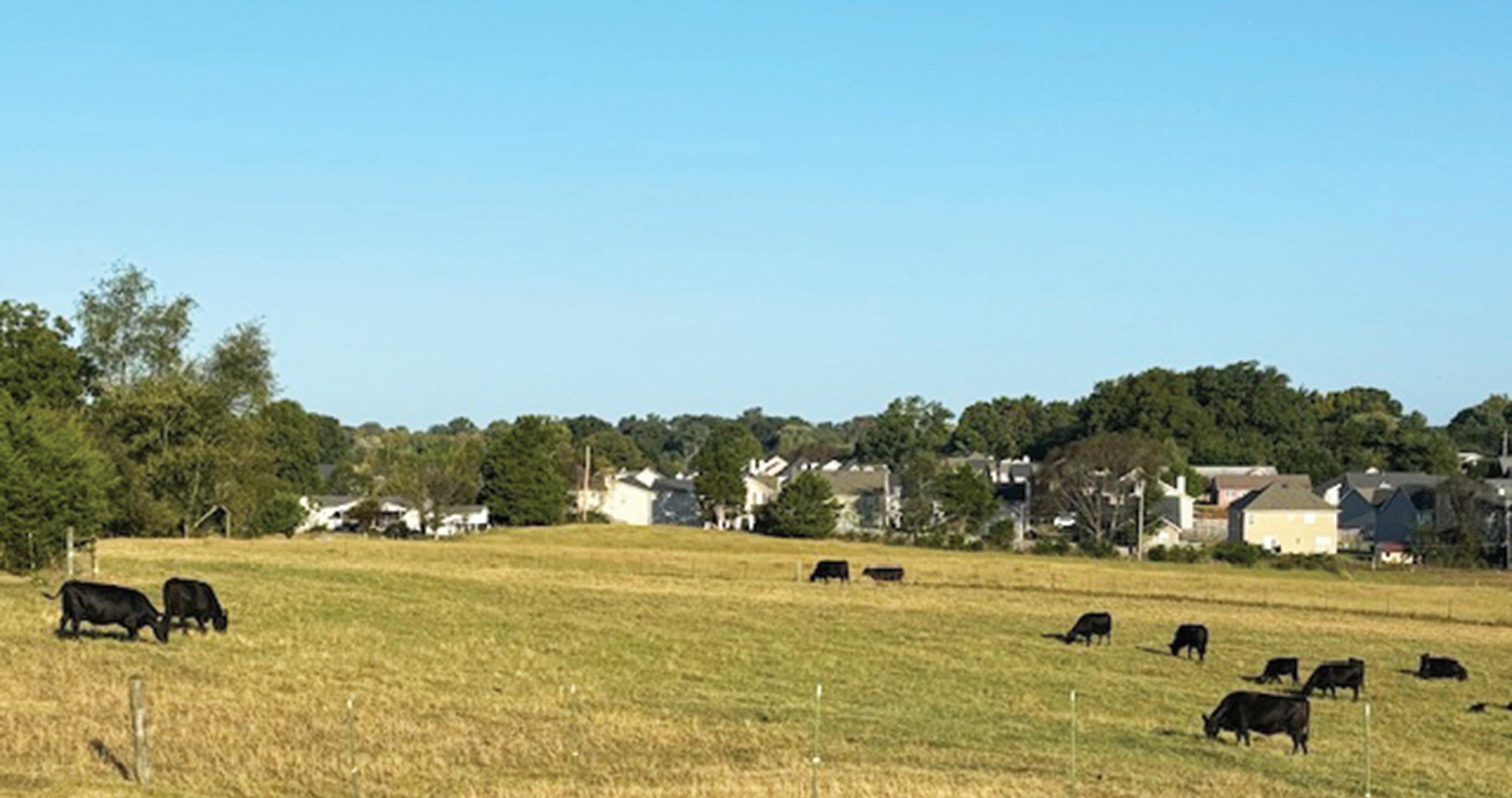
and what it will mean not only for themselves, but also for consumers.
By Christy Breedlove and Kathy Myers BLOUNT COUNTY FARM BUREAU WOMEN
What do genuine, leather sport balls, colorful T-shirts and turf grass have in common? The answer is the number one industry in Tennessee – agriculture. Agriculture is responsible not only for the animal hides for leather, soft cotton fabric for T-shirts, and turf grass for sport fields, but also the food we place on our plates and many items we use each day.
Unfortunately, throughout the state of Tennessee and even here in Blount County, farmers are seeing a reduction in land available to grow crops and produce livestock. To see just how much farmland was being lost across the state and in each county, a study was conducted by a team at the University of Tennessee Institute of Agriculture in which information was gathered from all 95 countries. When the results were released to the public in 2023, Tennessee was found to be losing farmland at a very rapid rate.
The five-year period between 2017-2022 shows an acceleration of loss. Since 1997, over 1.5 million acres of Tennessee farmland have been converted away from agricultural use. It is hard to imagine the
20 YEARS (1997 – 2017)
1.1 MILLION ACRES EQUIVALENT TO 4 COUNTIES
• 55,601 ACRES/YEAR
• 152 ACRES/DAY
• 6.3 ACRES/HOUR
5 YEARS (2017-2022)
432,941 ACRES EQUIVALENT TO 2 ADDITIONAL COUNTIES
• 86,588 ACRES /YEAR
• 237.22 ACRES/DAY
• 9.8 ACRES/HOUR
actual size of farmland loss across our state unless one compares it to our closest national park, which consists of 522,419 acres (TN/NC). Tennessee has lost the equivalent in acres of almost three Great Smoky Mountains National Parks. If the rapid loss of farmland continues, Tennessee is expected to lose a total of 2 million acres or more by 2027.
What about Blount County? Unfortunately, Blount County made it into the top 10 counties ranking 8th in the amount of farmland loss in 95 counties in Tennessee. In the East Tennessee region, Blount County ranks in the top three counties with Knox and Sevier. Between 2014 and 2023, Blount County lost 14,660 parcels totaling 8,246 acres converted from agriculture, farm and forest land to other uses.
There are many reasons why Tennessee is losing farmland. The population has increased due to a large influx of people moving here from other states. This increase in population requires additional land for housing, schools, roads and services. With skyrocketing land prices, farmland is being sold especially when older farmers become sick or die, and no family members are willing or able to continue farming.
The consequences of the loss of Tennessee farmland will be felt. Just as consumers are facing high prices and shortages related to the Avian Flu affecting the poultry industry,
• Continued on next page

Tennesseans will see less local produce at the store and farmers’ markets. Many small animal owners who depend on farmers for hay will have difficulty in finding it locally. The cost of locally raised beef and pork will rise and be in short supply. Susan Keller, whose family has farmed in Blount County for 200 years, stated, “We cannot produce crops without land.”
Tennessee Farm Bureau Federation (TFBF), known as the “Voice of Agriculture,” considers farmland loss a major priority. Working together with the University of Tennessee Institute of Agriculture and the Tennessee Department of Agriculture, TFBF hopes potential solutions to slow down the rate of farmland loss can be found and resources provided for smart growth and expansion. In February, Senate Bill 207 was introduced in Nashville to establish a Farmland Preservation fund to allow landowners options for future decision making when it comes to their land. The bill is still in committees at the time of this writing. In addition to state intervention, local government needs to be aware of the rapid farmland loss, understand the long-term effects, and be willing to work with farmers who want to continue to farm their land.
In conclusion, Tennessee and Blount County are losing farmland at a rapid rate. Once farmland is lost to concrete and asphalt, it is unlikely it will ever be restored. The long-term effects on agriculture worry farmers about the future and just what it will mean not only for themselves, but also for consumers. The month of March has been set aside as National Agriculture Month with National Ag Day on March 18. This recognition was established as a way to thank our farmers and

educate the public of their importance. Farmers deserve our respect and appreciation. The next time you eat, thank a farmer! tnfarmbureau.org/podcastprotectingourfarmland tnfarmbureau.org/farmland-loss-in-focus farmmanagement.tennessee.edu/land-loss/











In February a client asked me if it was time to invest. This question was certainly not unreasonable. However, it followed several months of evaluations, goal identification and creation, and budget reviews. The near-term goals were met with low risk allocation of assets and the longer retirement objectives were met with long-term strategies in nature. Their concern was not with the near-term, but with the longterm and was due to their concern with the change in administrations and turmoil in Washington D.C.
As a professional, I knew they needed to get started as the years to reach their retirement were becoming ever shorter and they were not ready. But all the negative noise around national politics was impacting the markets1 and causing not only my client but most likely many to reconsider putting money into the markets. If it is not time to invest now, when is it time?
There are advisors who promote ‘timing’ the markets and suggest they may have the key as to when to get in and out of the markets. In my opinion, trying to time the markets rarely works, at least not consistently. To be successful, you must be correct twice; the timing of the move out as well as the timing to get back in. Getting out too early and significant profits could be missed if they continue to move higher for weeks or even months. Getting out too late and gains already achieved could be partially or entirely lost. Once you have sold, once again you must get the timing correct on reinvesting the cash. Too early and declines could continue, or too late and a large portion of
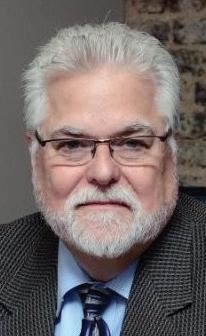
the recovery could be missed. This should be left to the traders, those looking for short-term moves, and not investors, who are those seeking longer-term gains with consistent returns.
If not market timing, then what is a better approach? If you were given a picture of a pendulum, no matter what point of its range of motion, whether extreme left or extreme right, a single picture at any point of its motion does not provide an indication of the direction of the pendulum. However, back-to-back pictures do provide insight into the pendulum’s direction. Unlike our economy, a pendulum has a fixed range of motion and thus there are two points of its range when the direction can be anticipated. There are indicators and data points when considered collectively, moves in the economy have a better chance of being anticipated. But, what about the times when the vision is just murky, or the investor is nervous?
Staging investments or phasing in the investments can be a viable strategy. Those participating in work 401K plans are phasing in their annual contribution. This is also called dollar cost averaging. Depending on the investment size, it can be phased in over weeks, months or maybe years. Doing so would be to invest a fixed amount at consistent intervals so at the end of the period, such as 90 days or six months, the entire amount would be invested. This would lessen the chance of investing all the funds at an inopportune time.
To avoid the reduction of the benefit from time-value of money, in my opinion it is always better to start investing today than to wait.
The opinions voiced in this material are for general information only and are not intended to provide specific advice or recommendations for any individual. All performance referenced is historical and there is no guarantee of future results. All indices are unmanaged and may not be invested in directly.
Citations: 1 Finance/Yahoo.com, Markets include Dow Jones Industrials®, S&P 500®, or the NASDAQ Composite®, each an unmanaged index. All investing involves risk


“THE PER FECTHOMEDESERVESTHE PERFECTFLOOR.”





By Lee Zimmerman
Teachers are appreciated for all the obvious reasons. Yet some stand out due to their kindness, patience and ability to connect with those they’re trusted to educate and enlighten.
Chris Ross, who teaches guitar, bass, drums and sound engineering at Murlin’s Music World in Maryville, utilizes those qualities while helping his students learn. These days, he averages between 50 and 75 students whose lessons are rotated on a weekly basis. They range from young school age children to older adults, all of whom possess a common goal — to learn to play a musical instrument.
Given the fact that many of his students possess varying levels of skill and sophistication, Ross’s ability to guide them gently and patiently helps elevate the experience and not only provide them with education and understanding, but also offer an enriching experience based on the bond between student and teacher.
Ross credits his early education to his late father, James “Jimmy” Ross, who owned his own Maryville music store. His father was also a professional musician who played bass in a band called The Rhythm Masters. He instilled the love of music in his son and started him on the road to a creative career.
“When I was 9 or 10, that’s when I kind of caught the bug,” Ross remembers. “I decided I wanted to be a drummer, much to the discomfort of my father. He said, ‘I own a whole music store, man, pick something quiet.” And I was like, ‘No, I think I want to play drums.’ Then when I was 12 or 13, the band that he had at that point, Gypsy Gold, needed a drummer, and he asked if I wanted to play drums in his band. I said, ‘No, y’all play country and jazz and stuff.’ As a 13-year-old kid, I want to play rock and roll. Then he said it pays $35 a night. So, 35 bucks a night to a 12- or 13-year-old kid in 1983 was a pretty decent chunk of money. So I kind started playing with him just because I liked the money.”
Eventually he picked up guitar after his dad showed him some licks. “I started teaching myself other stuff after that,” he says. “I was a smart aleck 13-year-old and my parents would say, ‘You think you know it all, but you don’t.’”
Regardless, Ross’s dad had enough faith in his son to entrust him with running the music shop on Saturdays. “By the time I was 14 or 15 years old, I was a paid professional musician and running a music store on my own,” he recalls. “I just kind of picked up the bass and

piano. My dad said I heard music before I was even born, when I was in my mom’s belly. I grew up in it. It came pretty naturally. I was by no means a prodigy or anything, and I sucked at first. I had to do the work, and I still have to do the work to this day.”
Like many musicians, Ross paid his dues by playing in various bands, but eventually he tired of the lifestyle. “I didn’t want to travel anymore,” he explained. “So I quit and I didn’t step on another stage for five years.”
These days, he devotes his time to helping others. “Teaching is so gratifying, especially when somebody gets it,” he said. “That’s part of what I live for — just passing on the knowledge to somebody else so they can enjoy it and love it like I do. I require two things from my

Chris Ross began his musical career by learning to play drums when he was 9 or 10 years old and then moved to guitar when he was 13.
students. I want them to enjoy what they’re doing, and I want them to progress. If they’re having fun and getting better, we’re good.”
In addition to teaching, he’s run the sound at Great Smoky Mountain Heritage Center for the past eight years.
That said, Ross’s kindness and concern isn’t limited to his day jobs. He also plays an active role at his church, First United Methodist. He performs with the church’s band during its Celebrate Recovery worship services on Wednesday nights and also serves as a worship leader. After running the sound board, the worship leader at the time, Chris Lee, suggested he join the band.
“I was like, ‘No, I just want to run sound,’” he recalls. “But he
said, ‘This ministry needs you.’ And that’s when I said, ‘Wow, okay.’”
Here again, Ross finds satisfaction by helping others. “The main part I love about recovery is to see somebody who’s wanting to make a change in their life,” he says. Our motto is, ‘Life hurts. God heals.’”
In that regard, Ross credits his mother for teaching him the patience he draws on daily.
“I’d be sitting in my bedroom at one o’clock in the morning, blasting some AC/DC,” he remembers. “She’d just go in her bedroom, which was right across the hall, close the door and go to sleep. She never complained. Any of the sweetness, kindness, gentleness that I have comes from my mom. The patience and teaching skills definitely come from my dad.”

By Lee Zimmerman
Herman Long has a unique perspective on life and a legacy in Maryville, the city where his parents brought him as a child and where he grew into adulthood. It’s an experience that melds life as an immigrant and that of a long-time resident, bringing him to both sides of a cultural divide.
He originally arrived in Maryville in 1956 following his mother’s marriage to an American soldier who was stationed in Germany but originally from Maryville. He and his father owned a downtown drugstore located at 106 E. Broadway. “The town was much smaller and the community revolved around downtown,” Long recalls. “It allowed me a wonderful window into how things worked in Maryville, and in the United States in general.”
Long was educated in the Maryville City School system from fourth grade through his graduation from high school. Nevertheless, life in his adopted country presented some challenges. “The first obstacle that I encountered was my lack of English,” he remembers. “I only spoke German, and in 1956 there was still a large residual dislike of Germans due to recent memories of World War II. I dealt with the discrimination given a foreigner by assimilating into the East Tennessee culture the best I could.”
Even after planting his roots in his new homeland, he still maintained a desire to see beyond its boundaries.
“Traveling back and forth to Germany ingrained a lust for travel that I still have today,” Long says. “My first excursions on my own came after I completed my army tour of service in Germany. The movie ‘Lawrence of Arabia’ influenced my decision to travel overland from Germany to India. The fact that I was traveling the Silk Road from Turkey to the east was one of the highlights of my travel experiences. The fact that I was visiting and experiencing places that I had read about were the greatest rewards I could get from my travels.”
Long still maintains the fervent desire to travel. He’s been to the Caribbean, South America and, most recently, Australia and New Zealand with his wife Mary this past January. However, the thing that occupies much of his time and efforts are his dedication and devotion to the blues. It originated with his stepfather’s record collection, which consisted of Dixieland, jazz and big bands that he enjoyed listening to as a young boy. As an adult, he took that interest

several steps further.
“I started going to Chicago in 1992 for the Chicago Blues Festival,” Long explains. “During my very first trip in 1992, I walked into Buddy Guy‘s Legends club and was totally overwhelmed by the fact that Buddy Guy was sitting at the bar having a Heineken on ice, and there was no one there but myself and my buddy Randy Ross. That day the three of us shot pool, drank beer and told stories to each other. The fact that I have gone to Legends every year since then, and have made it my home when I’m in Chicago has allowed me to experience the entire Chicago blues scene and all the people that are involved in it.”
Shortly after that initial sojourn, Long gathered a group of friends in Maryville and Knoxville to start a club that came to be known as the Smoky Mountain Blues Society, an organization that’s maintained that mantra since the initial founding. “Utilizing the contacts that I made at Buddy Guy’s club, we started bringing those musicians to Maryville for shows,” Long added. “The Blues Society grew from those trips to Chicago to what we have today, which is a vibrant, strong group of people that love and support the blues, come to shows and allow us to see that music here rather than having to travel to see it in other locales.”
These days, the Smoky Mountain Blues Society maintains that same musical mission. It presents shows on the Tennessee Riverboat in Knoxville and at Bluetick Tavern in Maryville, giving local blues aficionados and music lovers in general an opportunity to embrace the best of the blues. “The fact that we have a vibrant blues scene in the area has allowed for great support for local and regional musicians and brought major national acts to our area,” Long said. “For me, that was the whole purpose of starting a society that supported the blues, and it’s something that I love.”
Although the Smoky Mountain Blues Society was the product of his own particular vision, Long continues to give credit to those who helped nurture it along the way.
“It’s been a wonderful journey from Germany to America to Chicago and back to Maryville all these years,” he reflects. “And yet, I emphasize that the Blues Society exists because of its members who selflessly give their time, energy and financial resources to keep this dream going. I have to thank the community for its support, because without it, we would not be able to offer these musicians the opportunity to show what they do so well.”

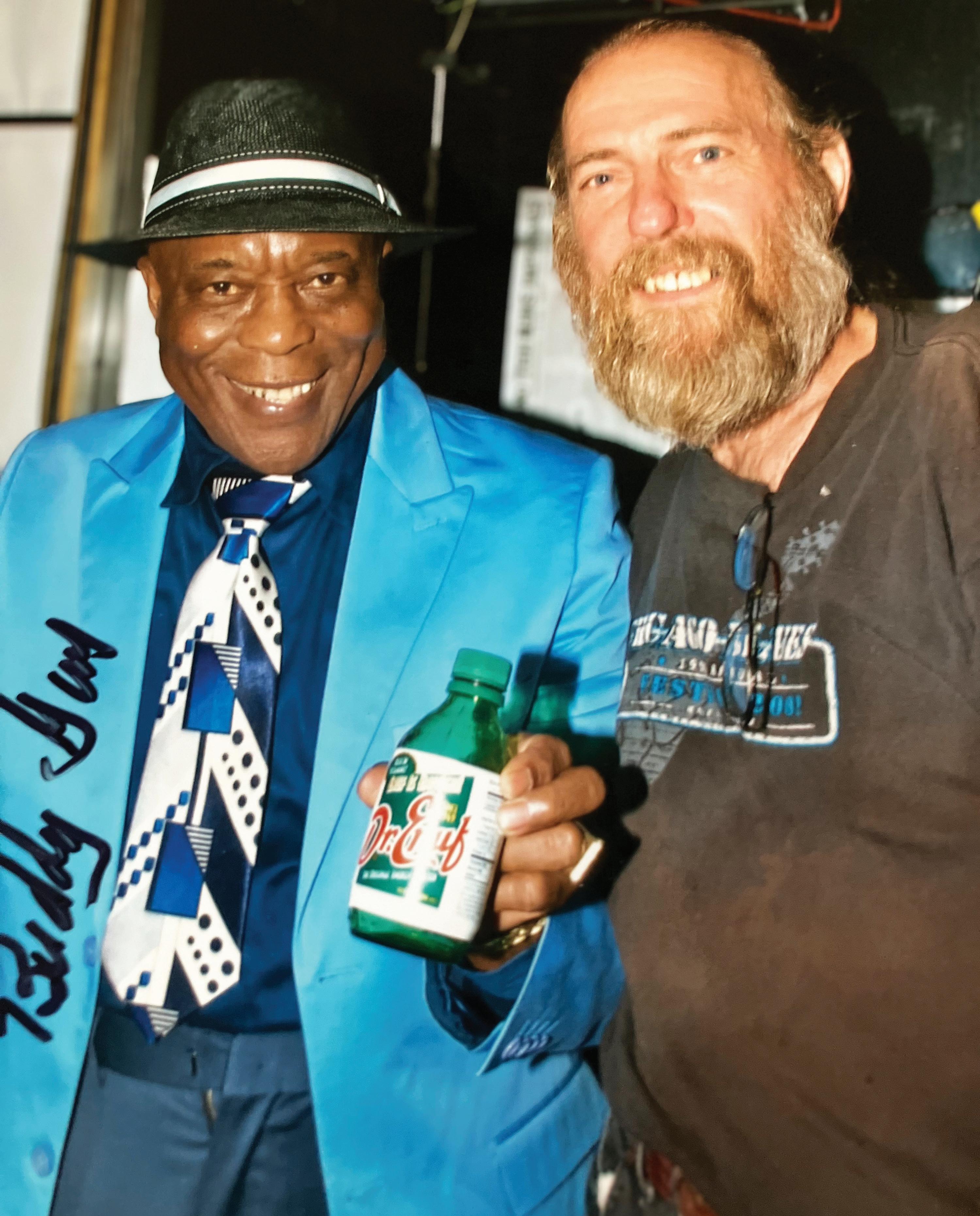

BY MARK D. BENNETT, MARYVILLE CITY ARCHIVIST
David Franklin Young (1873-1949) is no stranger to Blount County. His deep roots began with his maternal great-grandfather, James Weir (1763-1820), who was a Revolutionary War soldier that settled on a land grant in Alcoa; part of the foundation of the Weir house can still be seen on a knoll in Springbrook Park. His parents, Edward B. Young (1841-1924) and Isabella (Weir) Young (1841-1910), raised their family on a farm between Old Niles Ferry Road and 411 South Highway in the Fairview Methodist Church Community, which was part of the Thomas Maxwell land grant. In 1899, Young established a new firm, Badgett & Young, with two partners who were father and son—James N. Badgett (1853-1917) and Guy M. Badgett (1881-1926). Then, after 1905, Young split off and established another clothing outlet called the Young Department Store, which operated until 1917, and then he became active in the real estate business for the duration of his career life. When he served as mayor of Maryville (1919-1921) during an “age of optimism” after World War I, several businesses and neighborhoods were springing up that provided additional housing for ALCOA workers. Moreover, the Chamber of Commerce formed on his watch and the Maryville Library (now Blount County Public Library) was established. In 1938, he began construction on a building on lot 68, located at 211 West Broadway Avenue in downtown. Some of the first businesses to lease from Young

were McConnell Electric, Tennessee Gas Company and Goodyear Tire. Later, Lynch Bakery opened in the western portion of the building which later became VanMetre Bakery. In 1953, Daniel A. Duggan (1898-1968) moved his men’s store in part of the building, and eventually he expanded into the entire space when Peggy Coiffures, operated by Peggy Cox, closed. Kenneth Duggan (19332009), Daniel’s son, operated the store later, and Kenneth’s son, Todd, followed in his father and grandfather’s footsteps. Many of the men would buy their suits and hats there. Eventually, the store expanded into Foothills Mall, and by the early 1990s, the Duggan family decided to close the store in downtown.
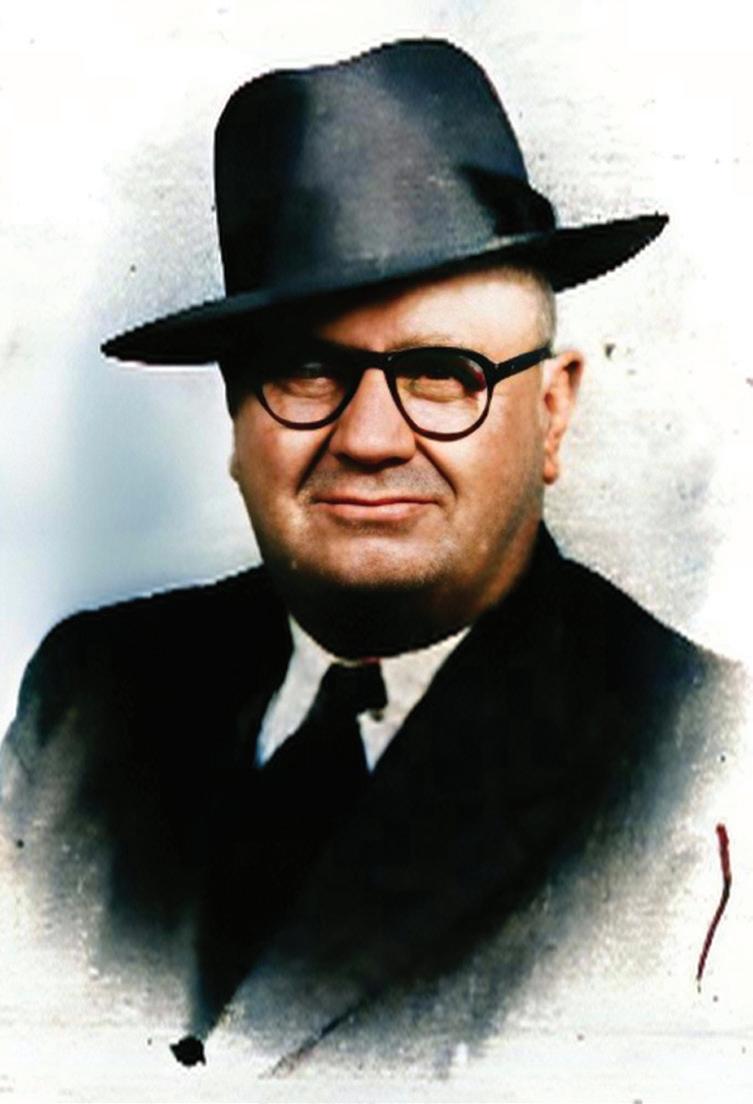
In 1966, two Jewish optometrists, Dr. Herbert Nash (1918-1997) and his partner, Dr. Maurice H. Konigsberg (1898-1974), bought the Young Building from Young’s nephew and niece, John H. Edmondson (1919-1982) and June (Edmondson) Harvill Bebb. Incidentally, John Edmondson married into the Lasier family, who started the well-known Blackberry Farms in Walland. Nash would later construct a building behind the Young Building on the same lot and move his practice there that is currently the location of LeConte Realty, owned by David Talley. In 1995, Michael Owens, who is currently a realtor with Realty Executive Associates, leased from Dr. Nash the Young Building and opened up a franchise of The Soup Kitchen, whose headquarters was based out of Oak


Ridge. Owens descends from the Houstons, a pioneer family from the Eusebia community. In 2005, Dr. Nash’s heirs sold the Young Building to Owens. The Soup Kitchen closed in 2006 and the Tomato Head opened that same year. In 2012, Tomato Head opened another location in west Knoxville and decided to close the one in downtown.
For 10 years, the building remained vacant until Micah Talley leased Diamondjack Wine and Bar in 2022 from Owens. Last year, he decided to close the establishment. Like Young, Talley is no stranger to Blount County. His father, grandfather and uncle—David, Mike and Mark Talley—ran the 411 Restaurant and Southern Skillet for several years. Micah’s great-great aunt Muriel (Wallace) Huddleston McCulloch (1908-1975) ran Travelers Restaurant on Highway 411 South, which was in its prime in the 1950s and 1960s. This restaurant housed the first franchise of the Kentucky Fried Chicken in Blount County, operated by Bill Love. Micah’s second-great-grandfather John Ashley Wallace’s (18781967) farm was developed into Wallace Hills Golf Course in 1960, which became Royal Oaks in 1990 and had been in the Wallace family since 1837.
Several years before the Young Building was constructed, Jesse F. Richardson (1844-1907) operated his photographic studio on the eastern part of the lot from 1890 until his death. Richardson served in the Confederate Army as a private in Company E of the
North Carolina Infantry and lived in a residence just east of his photography studio.
Prior to the studio, the Rev. John A. Silsby (1858-1939), a Presbyterian minister and Maryville College graduate, printed The Maryville Index (1878) on the eastern half of lot 68, which promoted the temperance movement that led to Maryville unincorporating in 1879. Silsby was instrumental in forming the first college-based YMCA in the United States. After he left Maryville around 1882, he became a missionary to China.
Another newspaper that occupied the same two-story building prior to the Maryville Index was The Maryville Republican (later became Maryville Democrat), that was published by African Americans William Bennett Scott Sr. (1821-1885) and his son W.B. Scott Jr. (1845-1917). Scott Jr. and his wife Mary lived on the western half of the lot. Before coming to Maryville, W.B. Scott Sr. and Jr. published the Colored Tennessean, the first African American newspaper in the South. Scott Sr. was also a harness and saddle maker and was instrumental in establishing the Freedmen’s Institute. In 1869, he was elected mayor of Maryville along with other African American aldermen Charles Wallace (1828-1885), Thomas Lillard and David Hannum. Scott’s maternal grandson, Charles Warner Cansler (1871-1953), who was a well-known
educator and civil rights advocate in Knoxville, wrote “Three Generations” (1939), a book that provides details of the life of his grandfather in Maryville. Cansler reportedly resembled the him.
Before the Civil War, lot 68 was in a section of downtown that was mainly residential. William Toole owned the lot then but resided on another one in downtown where the Roost and Street Kungfu are currently located. He also operated a tan yard along Pistol Creek near the current Blount County Health Department. In 1831, Toole bought the lot from Captain John Freeman, who ran a tavern where Bella Restaurant is currently located. In 1830, Matthew W. McGhee sold Freeman the lot. Barclay McGhee (1759-1821), a large landowner, saddler, and father of Matthew, secured the lot from a Tennessee land grant. McGhee Tyson Airport bears the name of his greatgreat-grandson, Charles “McGhee” Tyson (1889-1918), who perished in a plane crash over the North Sea during World War I. Tyson’s great-niece, Drew Gilpin Faust served as president of Harvard University (2008-2019). Another Barclay McGhee descendant, Helen Ross McNabb (1910-1997), founded a mental health facility that currently offers its services to East Tennessee.
Later this year, Bella owners Jimmy Loup and avid Sam Houston admirer, Jim Saunders, are opening up in the David F. Young Building a new upscale restaurant, called the Raven Steakhouse & Lounge, in honor of Sam Houston’s Cherokee nickname. Like David F. Young, Sam Houston is definitely no stranger to Maryville.
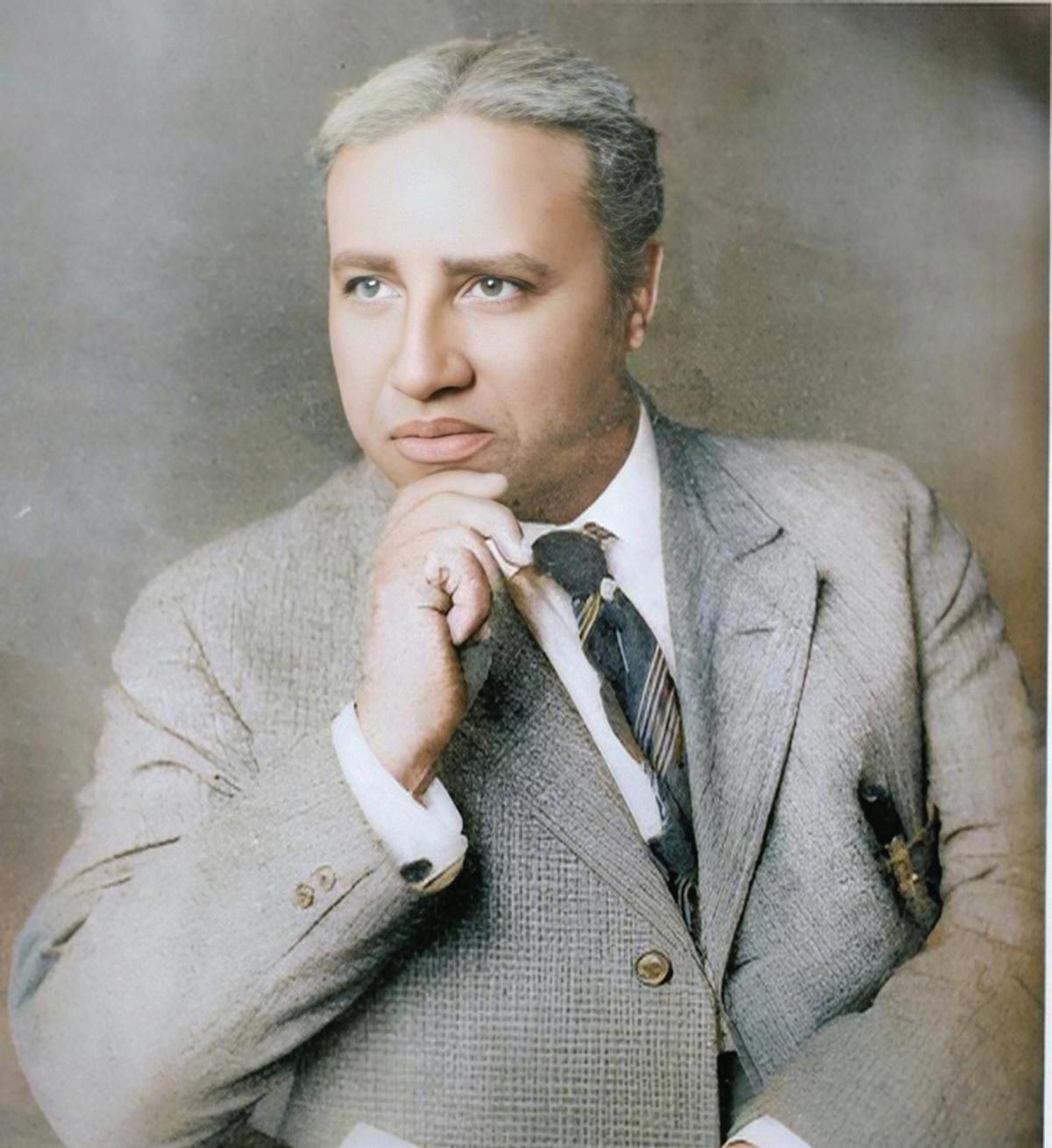




Long walksonthe beach, sipping coffee by theshore,spending timewiththe person youlove most –whatever your dreams maybe, we’rehereto help youlive them.AtQuality Financial Concepts,wecustomizeaplanfor your future,soyourgreatestmoments are spent doing what youlovemostwith theone youlovemost. Call todaytoplanyourfuture. 865-984-3550











At Tennessee Memorials,wecan createacustom monumentorstoneworkofany kind.Monuments,signs, garden rocks, ser vicememorials,gif ts,and other various stone pieces.Wekeep manydifferentcolors and types of stone in stock .Because of this,wehave little limitations to what we canput on them foryou.Ser vices include date cuts and on-siteblasting.Also,we offer foundation repair and stone restoration. Tennessee Memorials offers manyother produc ts.Produc ts would include bronze plaques,memorial add- ons,customization to existing stones and more. Feel free to askusifwecan be of help in anyway foryou and your family.
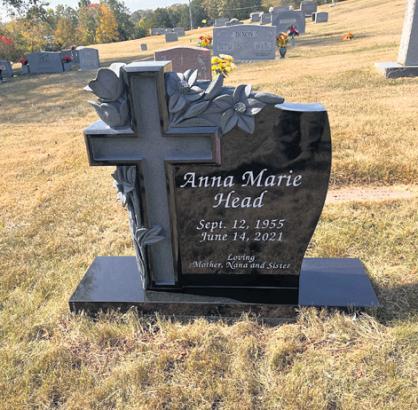
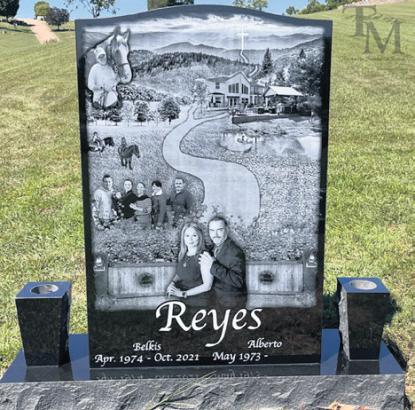
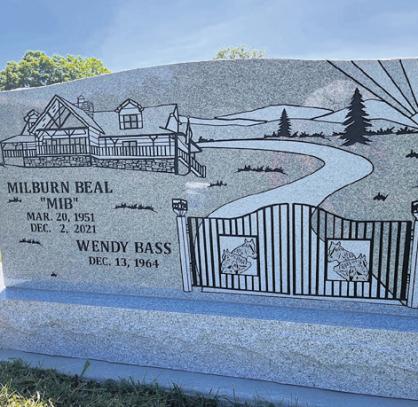

By Linda Braden Albert
Daily devotions, history books and romance novels are what’s on tap in this latest crop of books. As always, this is not an exhaustive list, only the ones by local authors that have crossed my desk.
“Quiet Warrior—Daily Reflections for a Life Made Strong in the Presence of God”
By Les Burnette
In Les Burnette’s newest book, a daily devotional released on Feb. 14, Burnette uses biblical teachings to direct the readers to Jesus. “When you exchange your heavy burdens for the yoke He helps you carry, He will trade your fears and anxiety for courage, peace and joy in Him. He will comfort you in your brokenness, equip and inspire you to gain victory over staggering obstacles and encourage you to keep going in your successes,” Burnette writes in his explanation of the book. His goal in writing the book is “to help you discover or rediscover the pearls of wisdom, life-giving promises, inspiring treasures found in the Bible. My utmost desire is to spark interest, help you gain spiritual insight into the Scriptures so you will fall in love with Jesus, the Author of life, who will teach you how to love one another.”
Burnette, who served his country as a helicopter pilot in Vietnam, has been a Reserve Army chaplain, public school teacher, social worker, principal, pastor, adjunct professor, American Red Cross station manager, counselor, probation officer, chaplain with Billy Graham’s Rapid Response Team, singer, songwriter and author. Burnette’s previously published books include the novels “Papaw’s Journals— The Other Side of Hope,” book one of a trilogy, and book two, “Papaw’s Journals—The Interrupted Journey.” He also published a devotional book, “Spirit War: The Call to Arms Devotions.” All are available at Amazon.com.

“Second Reproduction of The First 64 Original Printed Minutes of The Powell’s Valley Association of Primitive Baptists, Years 1906 Thru 1970,”“Reproduction of The Original Printed Minutes of The Powell’s Valley Association of Primitive Baptists, Years 1971 Thru 1996” and “Reproduction of The Original Printed Minutes of The Powell’s Valley Association of Primitive Baptists, Years 1997 Thru 2023”
Reprinted by Larry Bush
Larry Bush’s familial ties to the Primitive Baptist Church run deep, and when he discovered the existence of the first book reproducing the minutes of the Powell’s Valley Association of Primitive Baptists in East Tennessee from 1906-1970, he knew he had
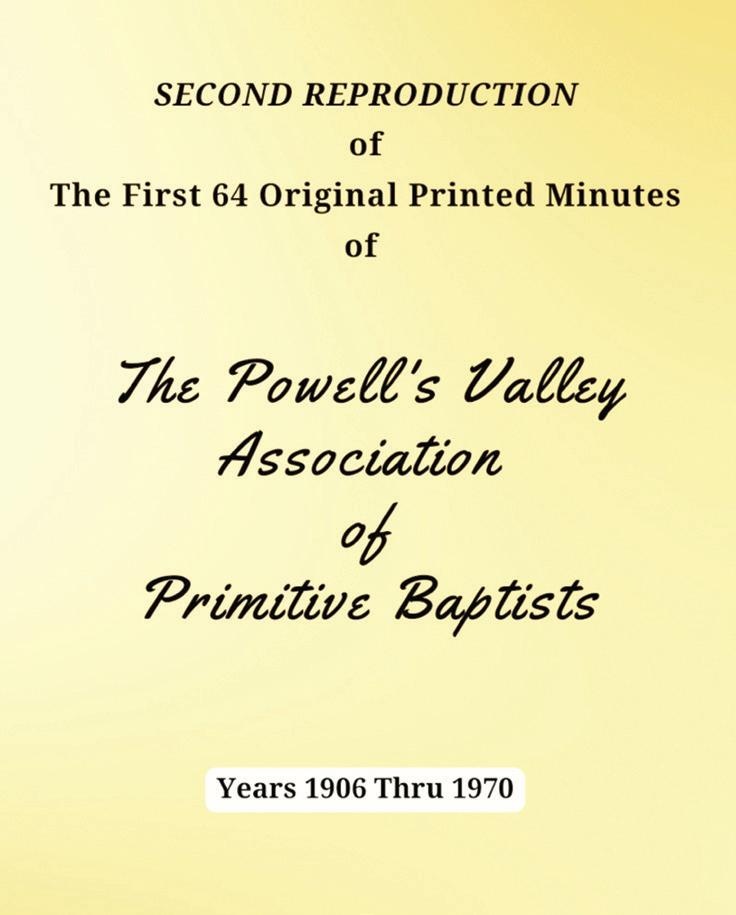
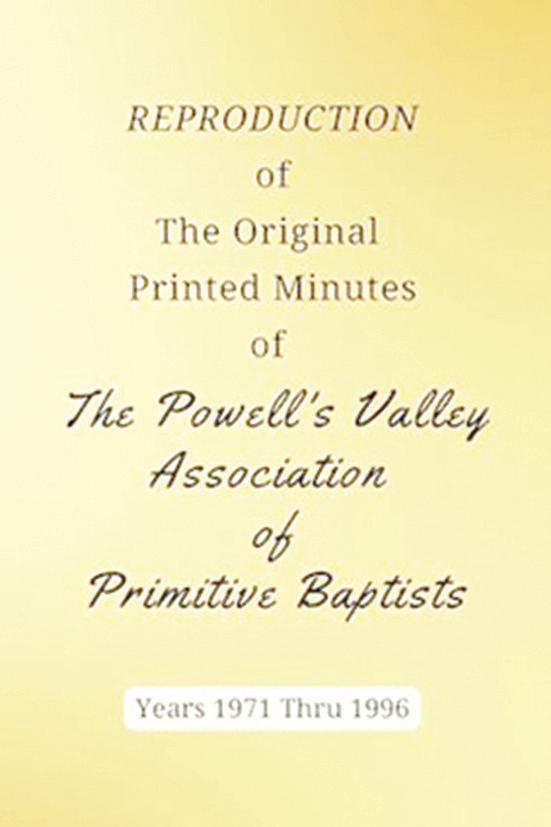
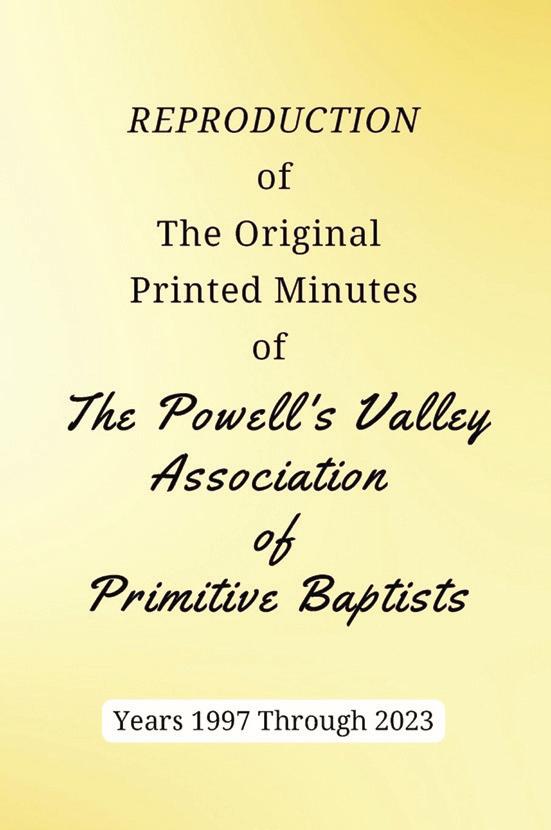
to make the information accessible to the general public before it was lost to time. Bush sought out others with a knowledge of the association, and through word of mouth, he found not only the original book of printed minutes but also loose pages of minutes from 1971-2023. The result is a three-volume historical record of the association, which includes minutes of the annual meetings; tidbits of information about the churches, including Brantley’s Chapel Primitive Baptist Church in Blount County, organized in 1948; obituaries of the people who made up the associational churches’ memberships; and more. Each volume contains about 700 pages of valuable historical data. The books are listed on the publisher’s website, CrippledBeaglePublishing.com, which provides a direct link to purchase at Amazon.com.
“The Red Mill Bookstore” and “The Light Continues”
By Lin Stepp
New York Times bestselling author Lin Stepp will be releasing her two latest books on April 1, both filled with the wholesome, down-home Christian values and sweet romances for which her novels have become known.
“The Red Mill Bookstore,” in her Mountain Home series, is based in Townsend, where Ella Quinn has come from Boston to help care for her beloved grandmother as she recovers from a broken arm. Ella’s world in Boston had turned upside down with the death of her friend and mentor, owner of the bookstore where they had worked side by side. The bookstore had been Ella’s life, but after her friend’s death, it had to be sold to pay off its debt. As Ella helped care for her grandmother, she found that Townsend offered many advantages, including reconnecting with Jesse Helton. On childhood visits to her grandparents, she and Jesse had been constant companions, and both were happy to renew their friendship. Ella also found a new life in Townsend when she used the unexpected inheritance
from her Boston friend to open her own bookstore, the Red Mill Bookstore, near her grandparents’ mill. Readers will find many familiar places mentioned in the book as well as many familiar names, and will be intrigued at both the budding romance between Ella and Jesse and the mystery of who killed a local woman, a crime Jesse’s father was suspected of committing.

“The Light Continues,” book four in Stepp’s Lighthouse Sisters series, finds Lila Deveaux returning to Edisto Island after spending time away from the island as an Episcopal sister. She’s found a new life and vocation at her childhood home near the lighthouse inn on the north end of the island, but when her old friend, Edward Calhoun, also returns to the island to settle the estate of his estranged father, her quiet life, helping her family run the lighthouse inn and gift shop as well as making a living with her art, takes a different turn. Readers will find some twists and turns as both Lila and Edward face painful memories of the past and find resolution, even as Lila’s three sisters did in the previous books.
Signed copies of these books as well as Stepp’s previous novels and regional guidebooks written with her husband, J.L. Stepp, are available on Stepp’s website, linstepp. com. Books are also available at Amazon.com and other online retailers.


Second Harvest Food Bank of East Tennessee’s annual “Pack the Bag” campaign has once again made a significant impact, raising enough funds from the public to provide more than 136,000 bags of kid-friendly foods to children across the region in nearly 300 public schools and programs. Through Food for Kids, more than 15,000 students across the food bank’s 18-county service area receive a weekly bag filled with nutritious foods to help them through the weekend.
Second Harvest extends its gratitude to its dedicated corporate sponsors who made this campaign a success. Special thanks to SouthEast Bank, Republic Plastics, Atmos Energy, and numerous other organizations for their continued support of East Tennessee children.
Second Harvest is committed to raising funds for the Food for Kids program year-round. Participating in the program comes at no cost to the child or the school — Second Harvest purchases all the food provided to Food for Kids students. This is completely funded by Second Harvest through support from our community. For more information about this initiative and other hunger-relief programs, visit www.secondharvestETN.org.

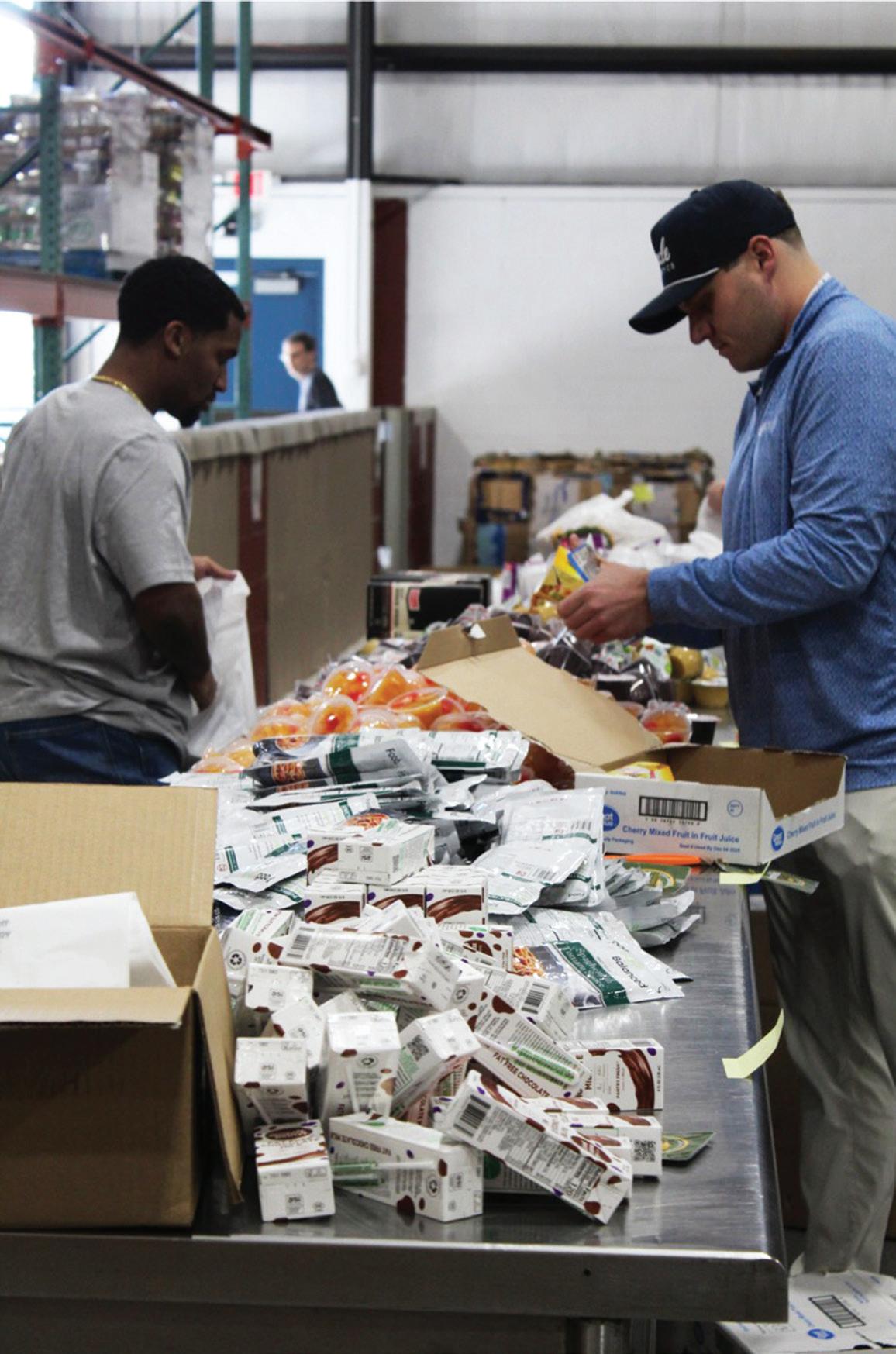
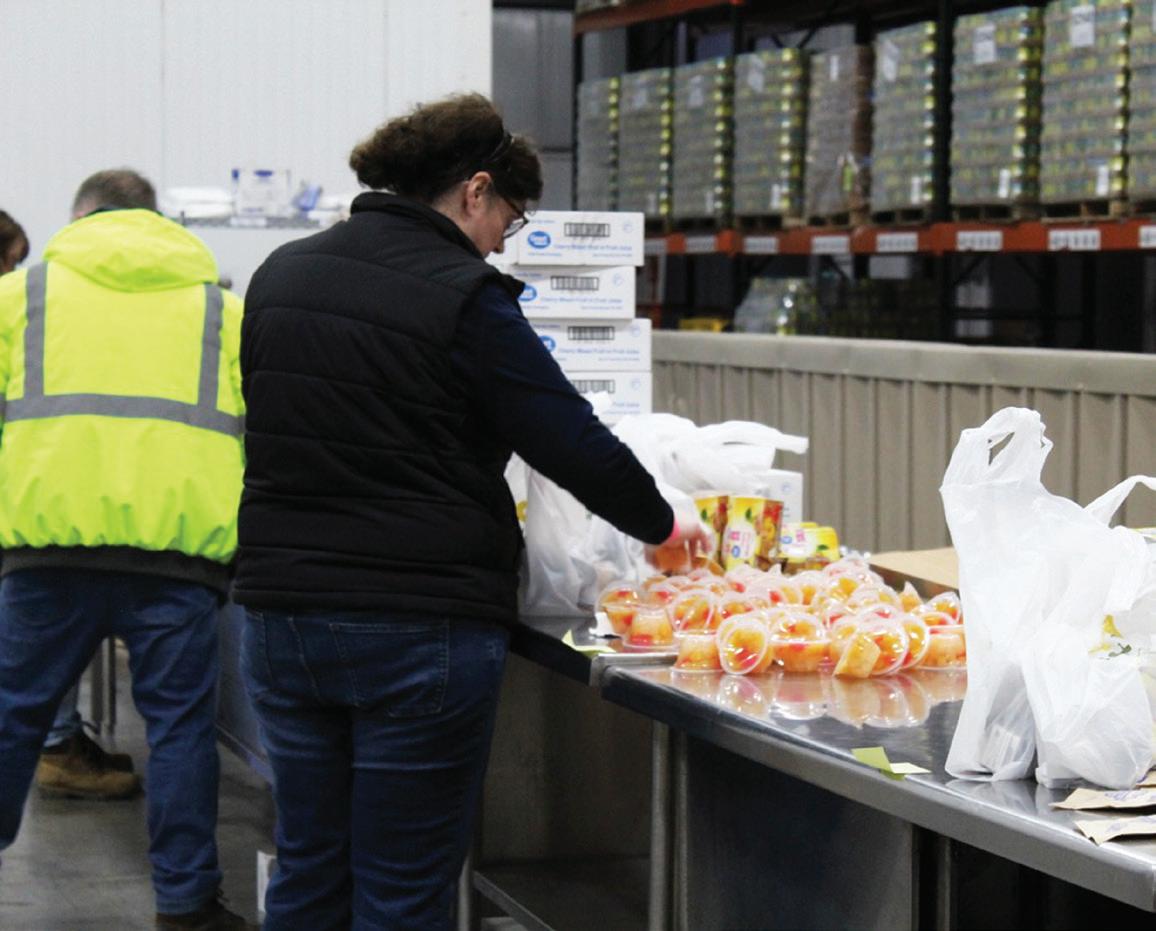



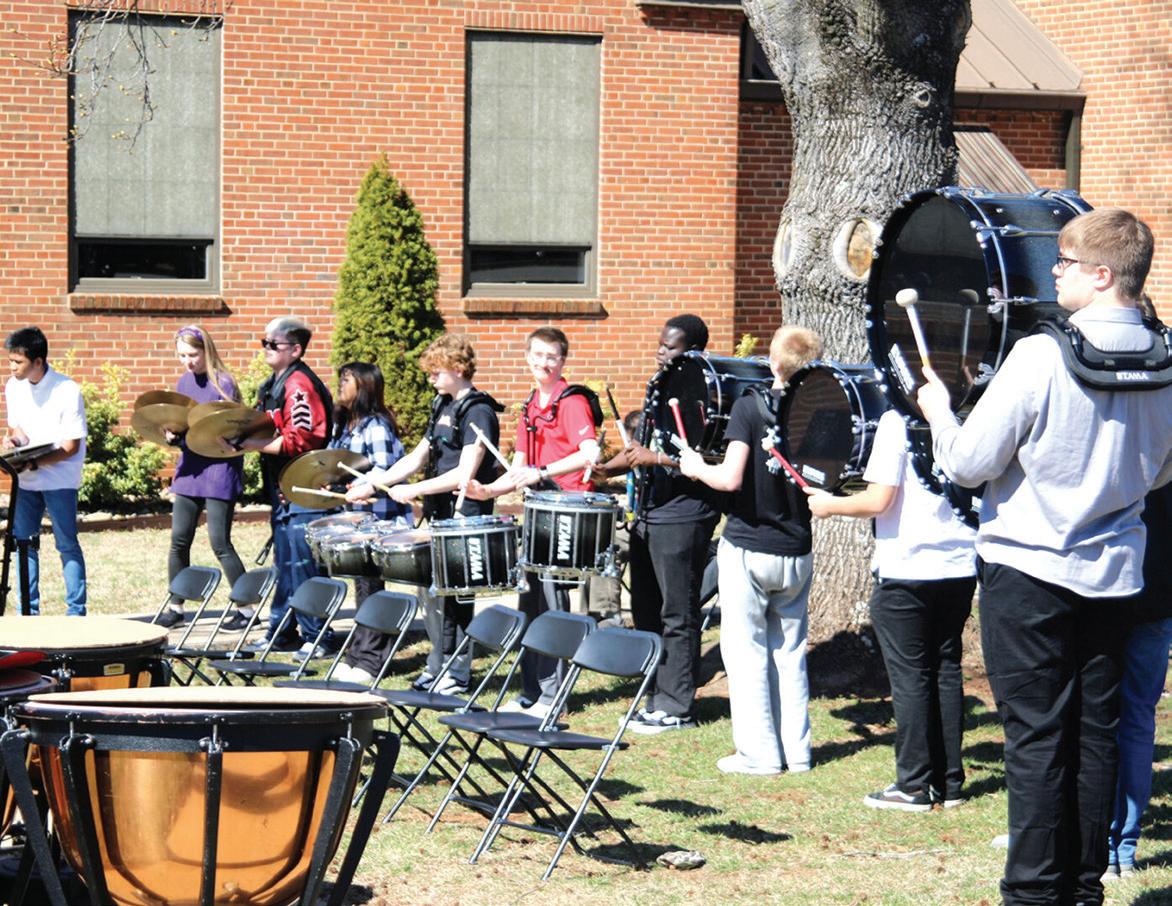
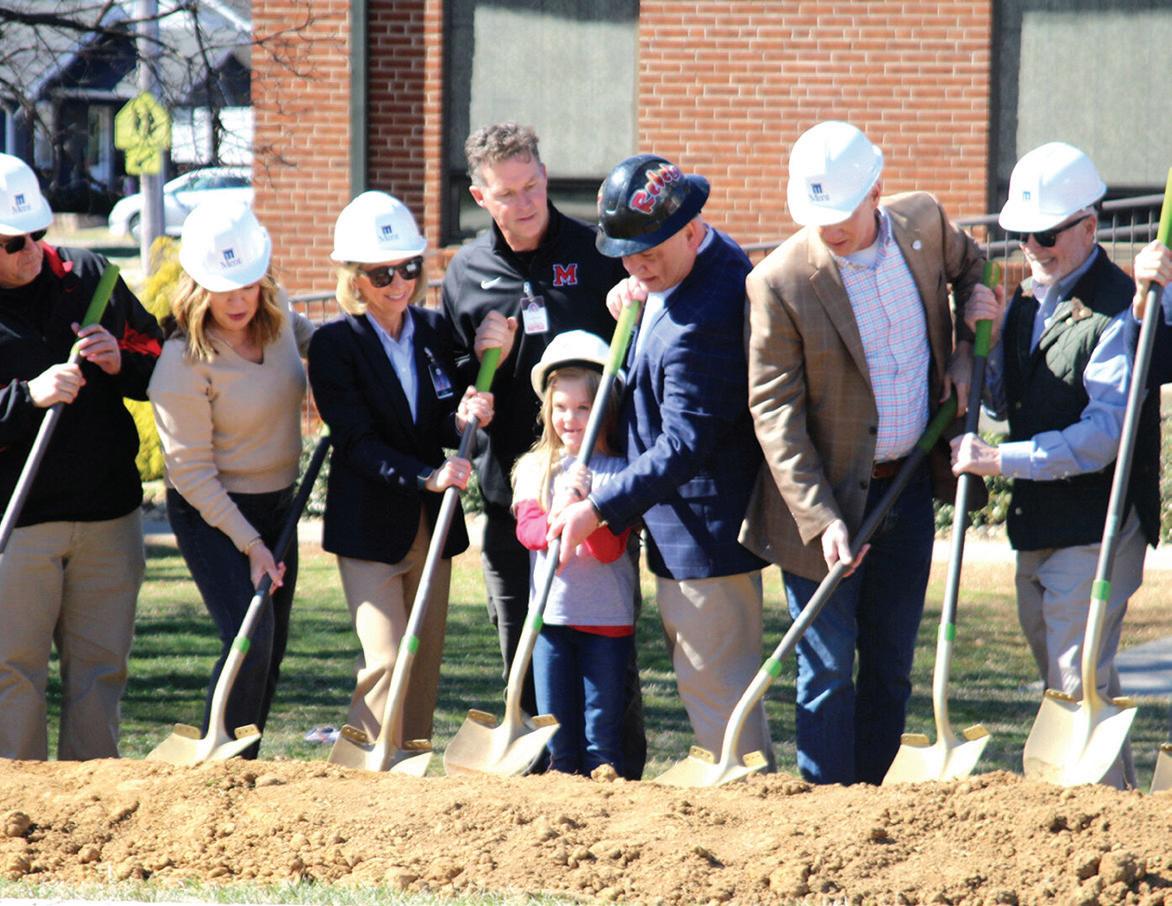
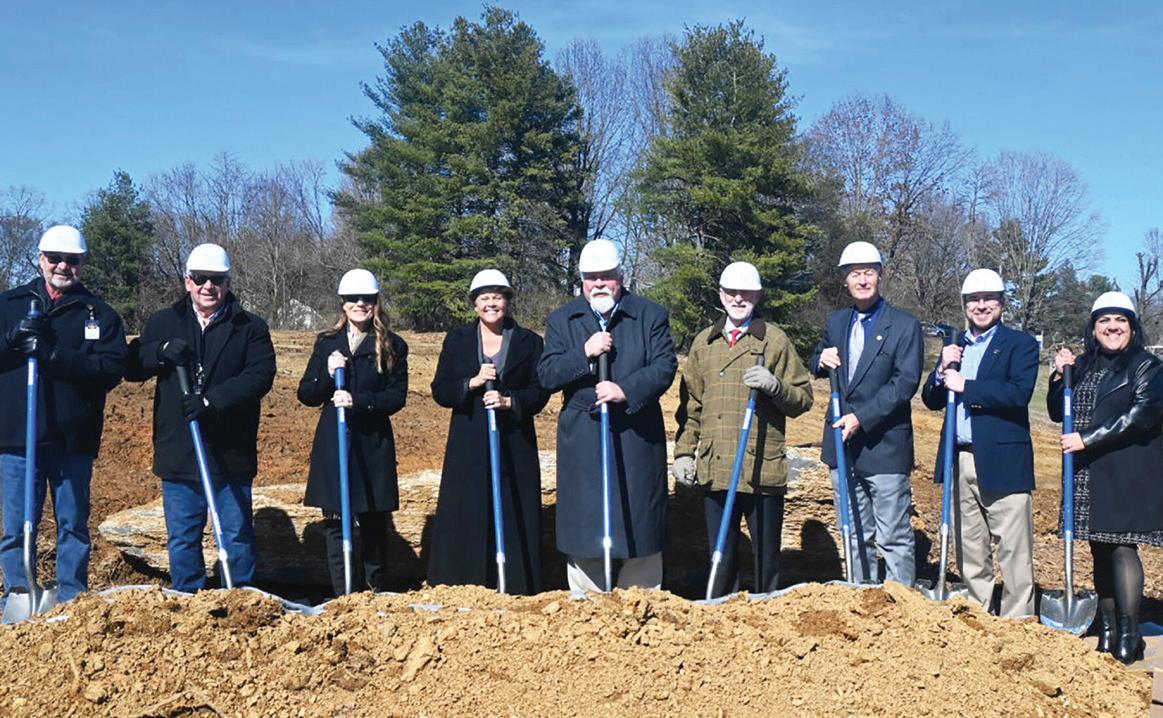
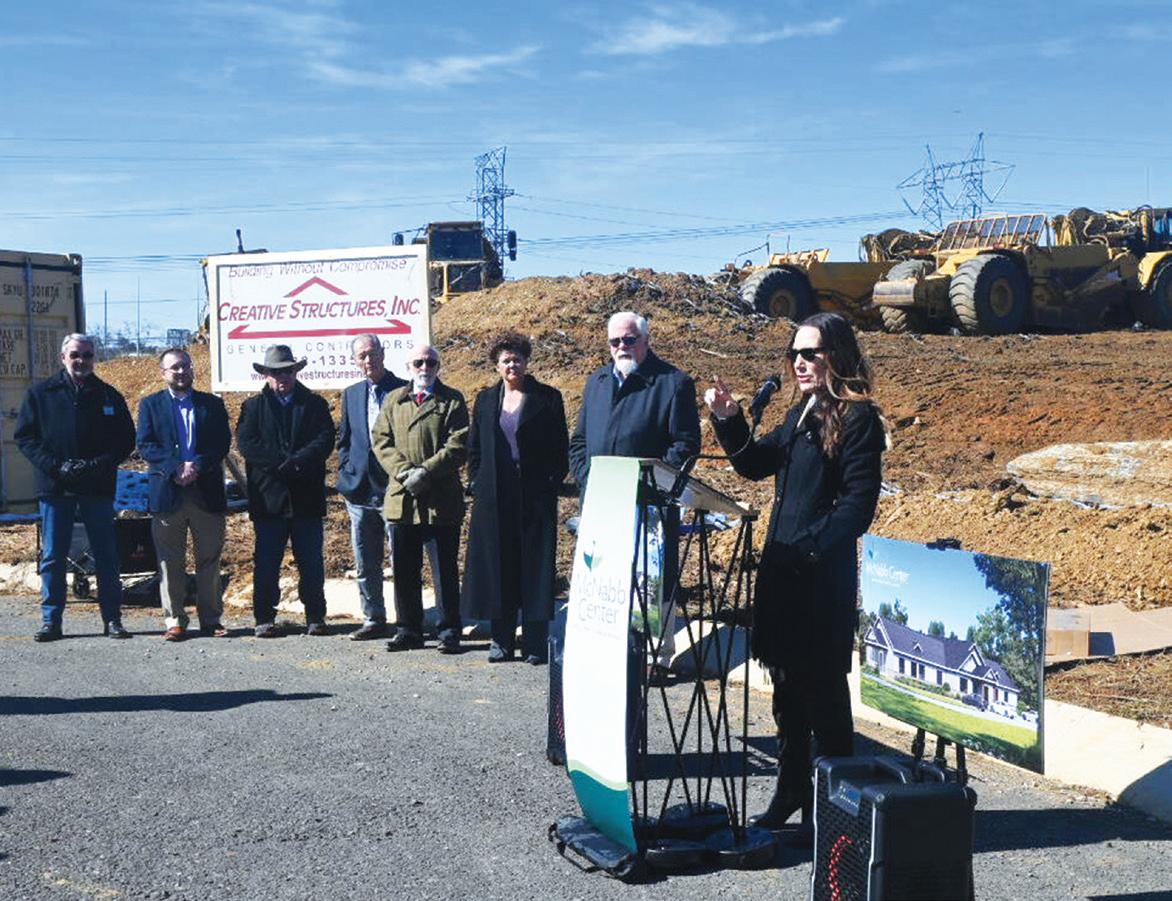










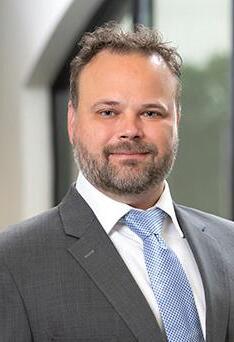
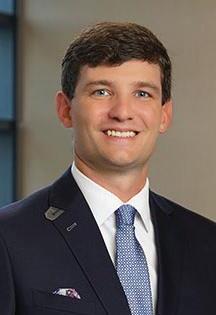
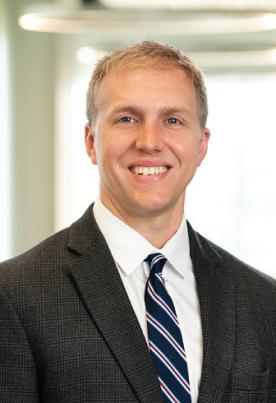

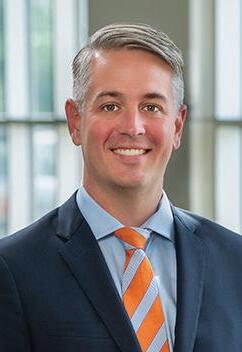
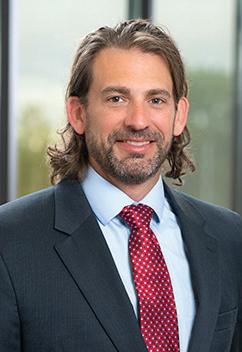
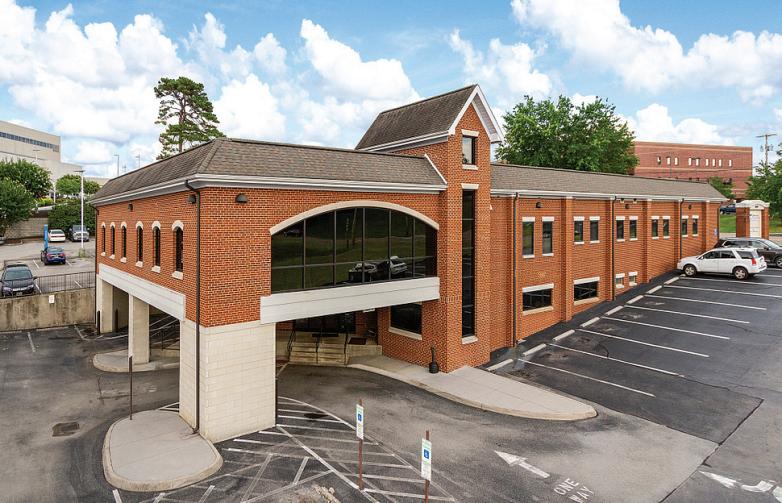
At Knoxville Or thopaedic Clinic,weare committed to delivering exceptional or thopaedic care in Blount County. Focused on all our patients’ needs, our Mar yville office provides convenient access to comprehensive, exper tcare.
• Mar yville High School
• Alcoa High School
• Eagleton College &Career Academy
• Heritage High School
• William Blount High School
• Mar yville College
To schedule with one of our expertsatKnoxville Orthopaedic Clinic,pleasecall (865) 558-4444 or scan theQRcode.